- Agriculture Farming
- Livestock Farming
Project Reports
- Hydroponics
- Best Fertilizers
- Vertical Farming
- Sheep Farming
- Goat Farming
- Poultry Farming
- Fish Farming
- Pig Farming
- Dairy Farming
- Rabbit Farming
- Success Stories of Farmers
- Boost Fruit Yield
- District Wise Crop Production
- Schemes & Subsidies
- Agriculture Colleges
- Farm Insurance
- Disease Control And Management
Agriculture
Aquaculture
Horticulture
Agri Business

Sheep Farming in Kenya: How to Start, Breeds, Loans, Zero Grazing, and Feeding for Beginners
Table of contents, is sheep farming profitable in kenya, zero grazing sheep farming in kenya, sheep farming for beginners in kenya, feeding management for sheep farming in kenya, sheep rearing operations in kenya, small-scale sheep farming in kenya, commercial sheep farming in kenya, sheep rearing business tips in kenya, sheep farming areas in kenya, benefits of sheep farming in kenya, sheep breeds in kenya, sheep farming problems in kenya, sheep farming loans in kenya, challenges in sheep farming in kenya.
Sheep farming is an agricultural process of raising sheep in open fields. The animals are kept together in groups and sheared once a year to remove their wool. Other operations that may be done on the farm include milk production, brearing, and selling lamb or mutton.
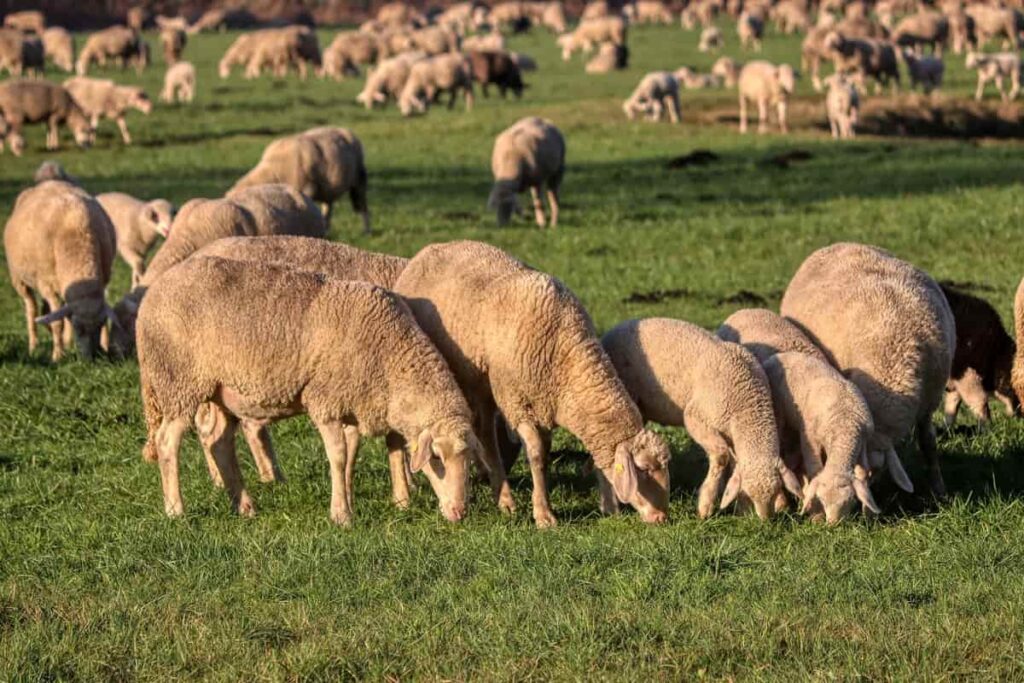
Sheep farmers in Kenya use several methods to keep their sheep healthy and happy. These include feeding them hay, corn, and other fresh foods; providing them with water; and keeping them warm by using firewood or electric fences to keep them from straying too far from the farm buildings.
Sheep farming in Kenya
- The country has a long history of sheep farming, and the industry continues to grow today. Sheep farming is a valuable source of income for many Kenyans and plays an important role in the country’s economy.
- If you have proper facilities, you can raise sheep on both a small and large scale. Commercial sheep farming is very profitable, and you will get your investment back quickly.
- Sheep farming profitability in Kenya depends on several factors, including the type of sheep you raise, the climate in which you are located, and the market conditions.
- Sheep farming can be very profitable in Kenya if you raise Merino wool sheep. In addition, they can adapt well to various climates, making them ideal for farmers in areas with varied climates.
- However, profits may not be as high if you raise other types of sheep. Additionally, sheep farming involves significant risk, so it is important to have good estimating and planning skills to enter this business. Overall, though there may be potential for profitability with Sheep farming in Kenya depending on the specific factors involved, it is always best to consult with an experienced professional before making any decisions.
Zero-grazing sheep farming in Kenya is a new and unique approach to sheep farming that has been gaining popularity in recent years. The idea behind zero-grazing sheep farming is to keep the sheep constantly moving, so they don’t convert grasslands into their pasture. In addition, this method is more sustainable than traditional grazing because it doesn’t rely on artificial feed supplements or fencing.
The benefits of zero-grazing sheep farming in Kenya include improved soil quality, increased production levels, and reduced greenhouse gas emissions. In addition, this type of farming is said to be easier and less expensive to manage than traditional grazing systems.
In case you missed it: Sheep Farming in Philippines: How to Start, Breeds, Production, and Management
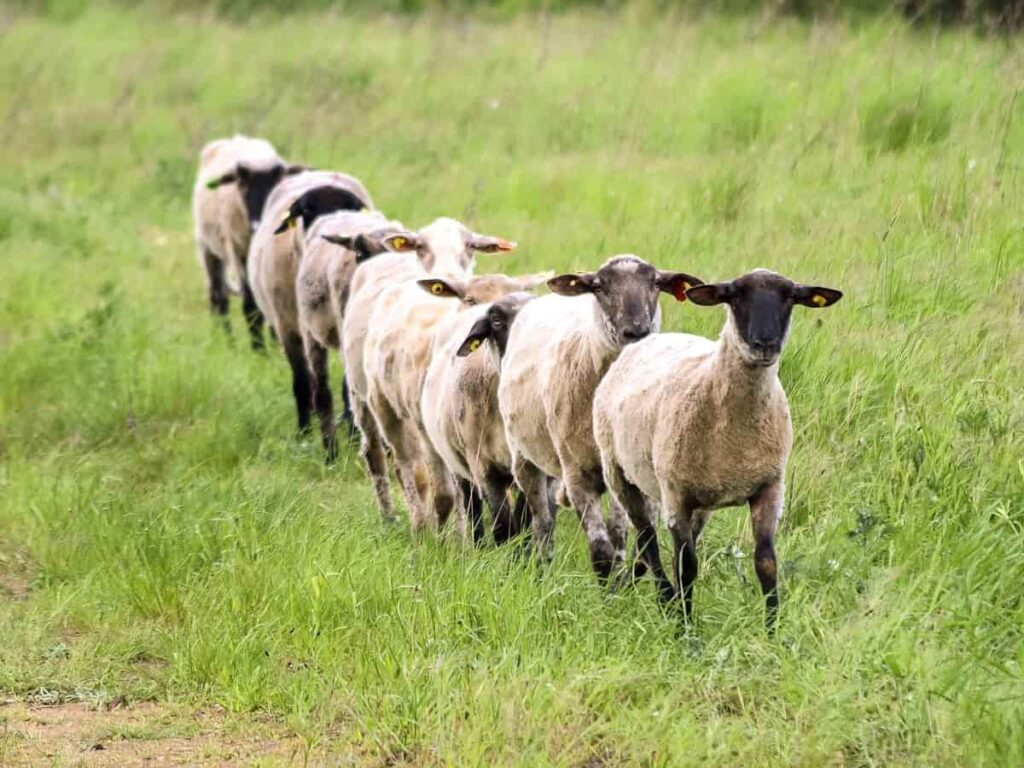
- Sheep farming is a great way to improve the livelihoods of farmers in Kenya. The main livestock product from sheep farming is lamb, which can be sold fresh or frozen. Sheep are also good for wool production, and their manure can be used as fertilizer for crops. Feeding sheep is an important part of sheep farming in Kenya. Sheep need to eat a lot of hay, fresh vegetables, and other nutritional supplements to stay healthy. Farmers usually feed their sheep twice a day, morning and evening.
- Sheep farmers in Kenya usually feed their sheep hay, fresh vegetables, and other nutritional supplements. Hay is the most important aspect of sheep farming because it helps keep the sheep healthy and fed. Fresh vegetables are also essential for the health of the sheep because they help them get enough vitamins and minerals. Farmers usually give their sheep a mix of vegetables to ensure they get the essential nutrients.
- To start sheep farming in Kenya, you will need to acquire a permit from the government. Once you have your permit, you must purchase a ram and some ewes (female lambs). You will also need to buy some feed and hay and construct a shelter for the sheep.
- Once you have acquired all the necessary equipment, it’s time to start. Firstly, divide the pasture into small patches and give each lamb its section. Then, feed the rams hay daily, so they are well-nourished and healthy.
- Once the rams are fully grown, it’s time to breed them. Firstly, you will need to take them to a nearby farm where they will be castrated (sterilized). Afterward, you will return them to your farm, where they can continue producing lambs.
Sheep farming in Kenya is a sustainable and profitable industry that relies on the controlled grazing of sheep. The animals are fed hay, straw, and other vegetation to provide them with the necessary sustenance while grazing. The farmers also cultivate crops near their flock to supplement their diet and create a healthy animal environment. Feeding your sheep is an important part of their care and well-being. When feeding your flock, consider the following tips:
- First, determine how much hay your sheep will need each day. This will depend on their size, weight, and weather conditions. You can calculate this by using a hay weighing scale or measuring tape.
- Next, ensure you have enough fresh water for them to drink. Sheep need about one gallon of water per day. If you live in a dry region, provide additional water sources such as rain barrels or cisterns.
- You should also provide your sheep with a balanced diet with hay, fresh vegetables and fruit, and minerals such as salt. A good feed mix for sheep includes 50% hay, 35% fresh vegetables and fruit, and 15% minerals. Check with your area’s regional agricultural extension office for specific feeding recommendations.
- Finally, be careful when loading your sheep into trailers or trucks to transport them to their pasture or wool shed. Ensure they are properly weighed first, so they don’t get overloaded.
There are many sheep farming operations in Kenya, but most are located in the central and eastern regions. The main reasons for this are the relative abundance of grass and water in these areas, as well as the fact that there is a high population density. The climate in Kenya is generally temperate, with rainfall occurring throughout the year.
In case you missed it: How to Make Corn Silage: Production and Management Steps for Goats, Sheep, Cows, Pigs, and Cattle
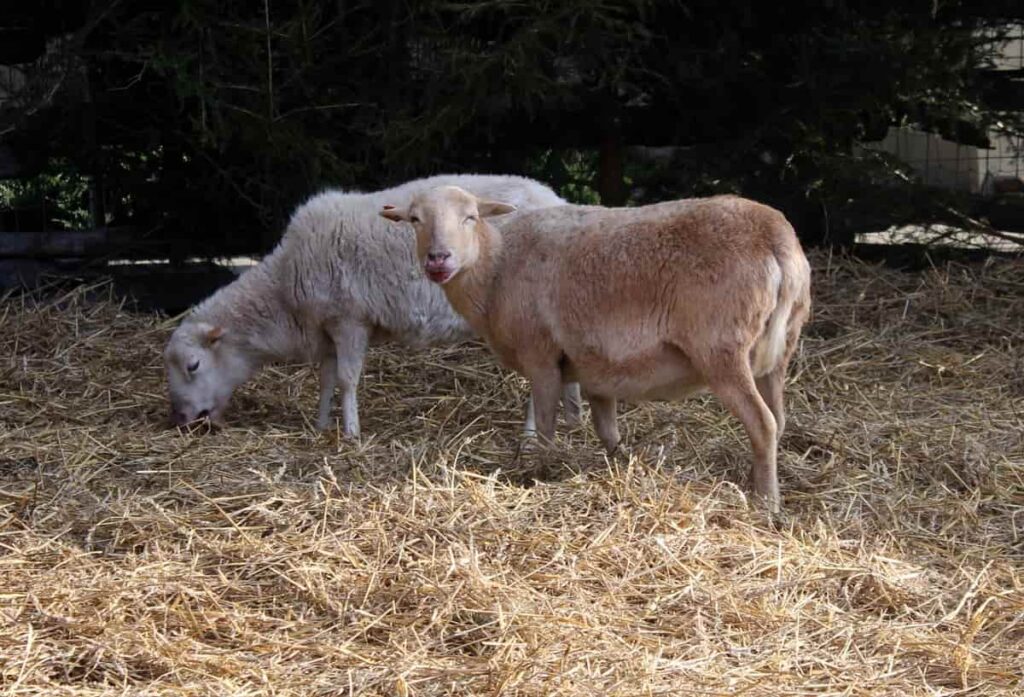
However, there are two rainy seasons, one from mid-July to mid-August and the other from late December to early January. Sheep farming in Kenya is very diverse due to the wide range of altitudes at which sheep can be raised. In addition, several different breeds of sheep can be found in Kenya.
Small-scale sheep farming is a popular agricultural activity in Kenya. There are several reasons for this. First, sheep are well-suited to the climatic conditions in Kenya. Second, there is a large potential market for lambs and wool in Kenya. Finally, small-scale farmers can easily control flocks and optimize production using traditional methods. There are several ways to start a small-scale sheep farm in Kenya.
The most common method is to purchase an existing farm. Alternatively, you can lease land from someone who farms sheep. Finally, you can start your farm by purchasing land and leasing it to a shepherd. Sheep farming is an environmentally sensitive activity that requires careful planning. You will need to consider the location of your farm, the type of soil available, and the climate conditions.
You will also need to build fences and barns, install water tanks and shelters for your animals, and cultivate crops to feed your livestock. If you are planning to start a small-scale sheep farm in Kenya, be prepared to invest time and money to succeed. However, this type of agriculture is rewarding because it allows you to produce fresh food products that are essential for the local population.
Large-scale sheep farming in Kenya is a significant sector, contributing to the country’s economy and export earnings. The industry has been growing steadily, aided by rising income levels and increasing demand for wool products. Commercial sheep farming is a high-value crop because of its wool content. Sheep also provide milk, which is valuable for cheese production. Additionally, lamb is a popular meat product in Kenya.
Sheep farming in Kenya is done on a large scale. The number of sheep raised per hectare ranges from 50 to 500 animals. The average flock size is around 200 animals. Sheep are fed hay, fresh green grass, and corn mash during winter. They are given hay, grain, and salt licks in the summer. Shepherds use fences to keep the sheep contained, so they do not damage crops or other property.
In case you missed it: How to Start Goat and Sheep Farming in United Arab Emirates (UAE): A Stall Feed Guide for Beginners
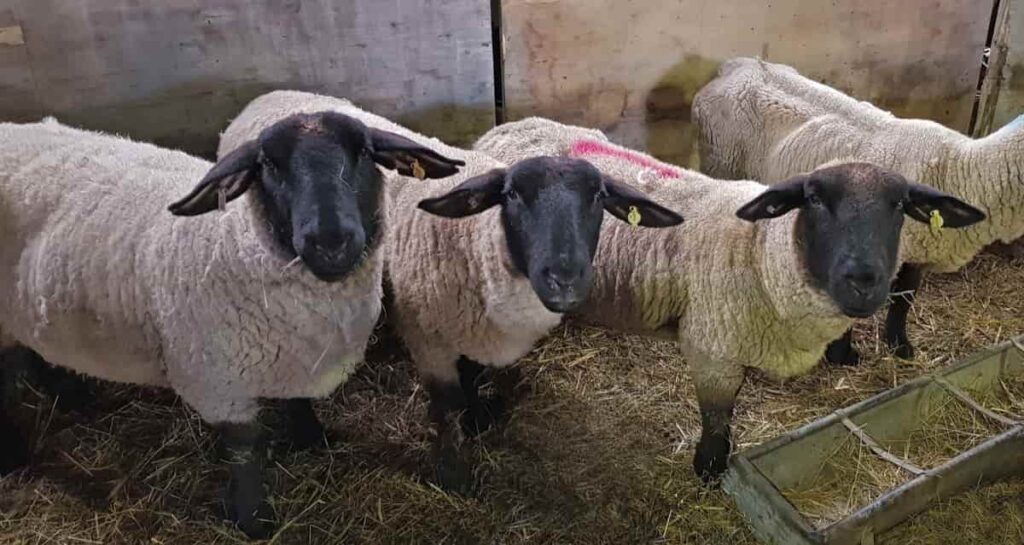
There are many sheep farming businesses in Kenya, but choosing the right one is important. Below are some tips to help you get started:
1. Get a good land lease – The most important factor in starting a sheep farming business is finding good land to lease. Make sure the land is well-drained and has enough freshwater sources. You’ll also need to negotiate a good lease agreement with the owner.
2. Get started early – The earlier you start your sheep farming business, the better your chance of success. Plan your investment carefully, and ensure you have all the necessary equipment before investing in this venture.
3. Choose a breed of sheep that best suits your climate and location – There are many different breeds of sheep, and each has unique characteristics and traits. Consider the climate where you plan to farm, as well as the type of soil and vegetation it is available. Choose a breed that will be able to survive in your environment
Kenya is located in Eastern Africa on the equator. It has a total area of 193,912 square km and a population of over 47 million people. The climate in Kenya is humid tropical with four seasons: wet season, dry season, monsoon season, and winter. Kenya has three main geographic regions: Western, Central, and Eastern.
- The Western region consists of the Lamu and Mombasa coastal counties that border Somalia.
- The Central region includes Nyanza province, the capital city of Nairobi, and Rift Valley province, which includes the major towns of Kisumu and Eldoret.
- The Eastern region consists of the Coastal areas including Lamu, Mombasa, Diani Beach, Tana River District (included Wajir County), Garissa County (included Garissa Town), Turkana County (included Borana Town), Nakuru County and Kitui County (included Kitui Town).
The main sheep farming areas in Kenya are Lamu Island, where there are many rangelands for goats as well as sheep; Isiolo, where there are large expanses of agricultural land suitable for growing maize or other crops alongside sheep; Nyanza Province, where there is ample pastureland for both sheep and goats.
Eastern Province where there is good wetland grazing potential across districts like Machakos, Kiambu, Bungoma, and Migori; Embu Hills. However, from Narok to Kajiado, Makueni, Machakos, and parts of the dry northern Kenyan rangelands where the sheep farming business is pre-dominant, the Dorper sheep breed is taking pride of place on farms thanks to its ability to withstand the vagaries of climate change.
There are many benefits to sheep farming in Kenya, including a high production rate and a wide variety of products. Sheep are efficient farmers who graze quickly and produce a high amount of milk, meat, and wool. They are also resistant to some pests and diseases, making them an ideal choice for rural and urban areas.
In case you missed it: Zero Grazing Sheep Farming: How to Start, Business Plan for Beginners
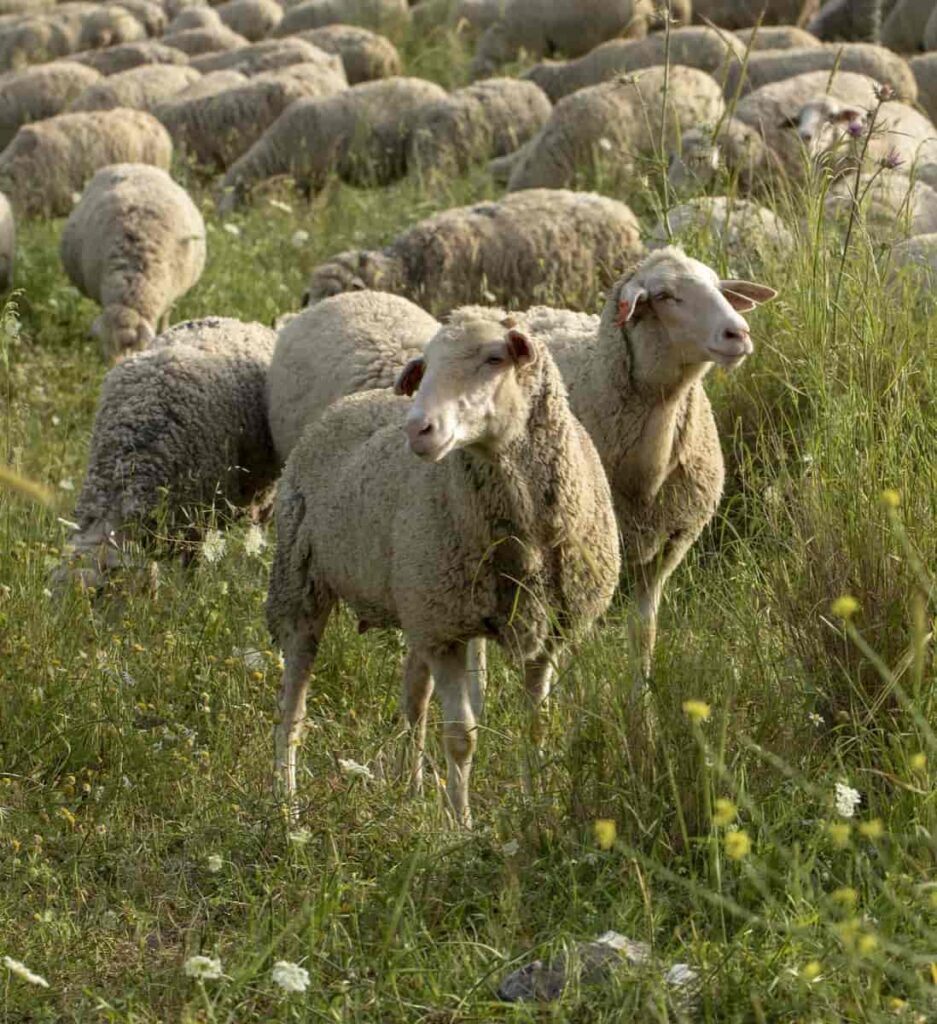
Sheep farming in Kenya is divided into dry land and wetland. Dry-land sheep farming occurs on open plains, while wet-land sheep farming occurs along rivers or in swampy areas. The main sheep breeds in Kenya are Merino, Corriedale, Southdown, Hampshire down, Romney marsh, Dorper, Red Masai, and Somali sheep. Sheep mainly fall into four broad categories: mutton, wool, dairy, and dual purpose: e.g., mutton and wool or mutton and milk.
- Hair Sheep breeds include Dorper, Persian Black Head, and Red Masai, and their crosses with local stock.
- Wool and Dual-purpose breeds include Merino, Corriedale, Romney Marsh, and crosses of these breeds with local stock.
- Sheep farming is an important sector in Kenya, providing food and income for farmers and their families. However, several sheep farming problems in Kenya need to be addressed.
- Some of Kenya’s most common sheep farming problems include overgrazing, competition from other livestock industries, disease and parasite outbreaks, and lack of access to water. Overgrazing is a major problem in Kenyan sheep farming because it causes the loss of valuable grasslands and erosion and desertification. This can cause a decline in the stock size of sheep, a decline in wool production, and increased susceptibility to disease and parasites.
- Competition from other livestock industries also poses a major challenge for Kenyan sheep farmers. Dairy cattle, pig farms, chicken farms, and goat herds compete for space on grazing lands, leading to reduced yields for sheep farmers. Additionally, these other industries emit large amounts of pollutants that can adversely affect the health of both sheep and humans.
- Disease and parasite outbreaks are also common problems in Kenyan sheep farming. For example, Newcastle Disease is a severe viral illness that affects lambs’ muscles and can be deadly if not treated promptly. In addition, parasites such as lice can also be harmful to sheep farmers’ livelihoods.
- Lack of access to clean water is another major challenge Kenyan sheep farmers face. Many areas where sheep are raised do not have access to reliable water sources due to drought or pollution.
Kenya has many sheep farming loans as the country is rich in pastureland and has a long history of raising sheep. Sheep farming loans can purchase land, build fences and other essential equipment, and cover initial start-up costs. In addition, many lenders offer deferment or interest-free options for some time, making it an attractive investment for those looking to enter the sector.
In Kenya, sheep farming is a traditional and important sector contributes significantly to the country’s economy. However, there are some challenges that the sector faces. These include lack of access to land, water shortages, and pests and diseases. In addition, competition from other livestock production activities has caused prices for wool and lamb exports to decline in recent years. Nevertheless, sheep farming has been a significant part of Kenyan agriculture for centuries.
However, recent challenges face the sector, which includes increasing competition from other agricultural activities and a decreasing population of sheep. The main challenges of sheep farming in Kenya include high disease prevalence, a lack of land, and water availability. The high disease prevalence is due to the proximity of domesticated goats and pigs, which spread diseases to sheep. Sheep also suffer from parasites and external injuries from competing with goats and pigs for resources.
In case you missed it: Sheep Farm Insurance in India, Companies, Policy, and Premium
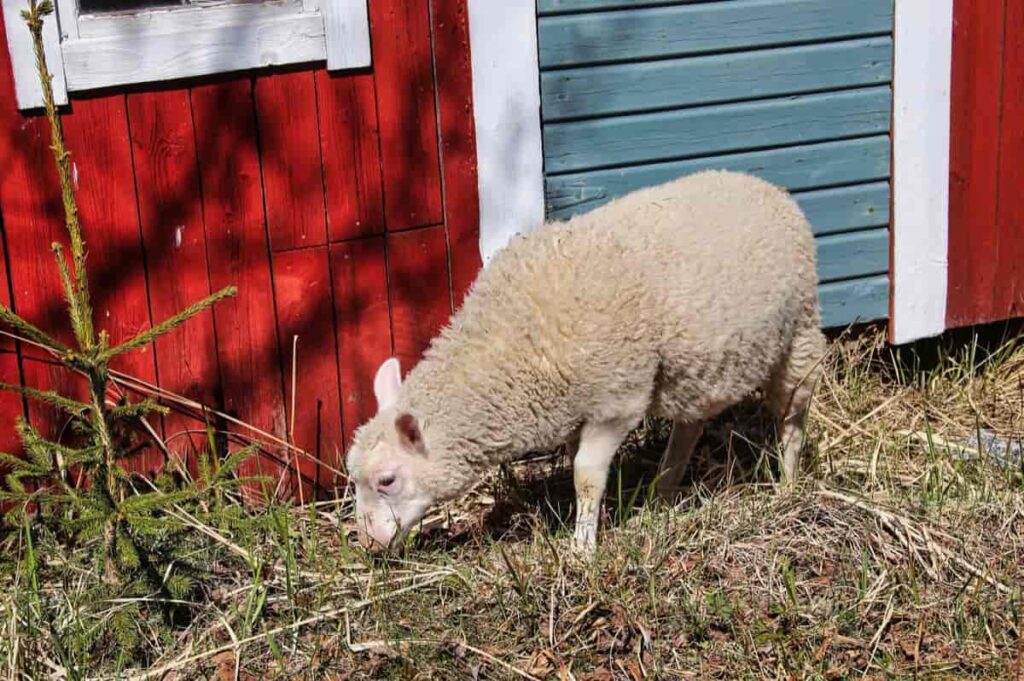
The lack of land is a problem because the traditional method of grazing sheep on long grasses does not work well in Kenyan climates. In addition, water is scarce in some parts of Kenya, which can challenge sheep farmers. The government is encouraging sheep farming through subsidies and other support measures, but these have not been enough to offset the challenges faced by the sector. There are also concerns about animal welfare in sheep farms. In addition, climate change is expected to impact agriculture in Kenya, including sheep farming.
Sheep farming is one of Kenya’s oldest and most traditional agricultural practices. Sheep farming is Kenya’s pre-dominant agricultural activity, accounting for nearly 50 percent of the country’s GDP. The largest market for Kenyan sheep products is Europe, followed by the United States. To raise sheep successfully in Kenya, farmers need good pastureland and access to water. They also need a reliable electric power source, including fences and shearing machines, to run their equipment.
- Fertilizer: The Essential Ingredient for Global Food Security and Profitable Growth
Common Challenges in Strawberry Farming: A Beginners Guide
Maximizing yield in ridge gourd farming: best practices and tips .
- Sustainable Agriculture with CRFs (Controlled Release Fertilizers): A Game-changer for Crop Productivity
Organic Farming vs. Natural Farming (ZBNF): Key Principles and Differences
Strawberry nursery establishment and management, modi vision for indian agriculture, government support and policies for zbnf in india, deworming schedule for sheep: a beginners guide.
- Ultimate Guide to Beans Farming in Kenya: From Planting to Profits
Ultimate Guide to Natural Vegetable Farming
Natural farming for sustainable livestock management, dairy farm technology in india: the future of dairy husbandry, comprehensive guide to organic farming in villages, modern sheep farming technology: the future of sheep husbandry, goat farming technology: the future of goat husbandry.
- How to Build a Low-budget Goat Shed: Cheap Ideas and Tips
Goat Farming Training Programs in India: A Beginner’s Guide
Types of pesticides used in agriculture: a beginner’s guide, economical aquaculture: a guide to low-budget fish farming.
- 15 Common Planting Errors That Can Doom Your Fruit Trees
- How to Make Houseplants Bushy: Effective Tips and Ideas
- Innovative Strategies for Boosting Coconut Pollination and Yield
- Pollination Strategies for Maximum Pumpkin Yield
- The Complete Guide to Chicken Fattening: Strategies for Maximum Growth
- Natural Solutions for Tulip Problems: 100% Effective Remedies for Leaf and Bulb-Related Issues
- Revolutionizing Citrus Preservation: Towards a Healthier, Greener Future
- Natural Solutions for Peony Leaf and Flower Problems: 100% Effective Remedies
- Maximizing Profits with Avocado Contract Farming in India: A Comprehensive Guide
- Natural Solutions for Hydrangea Problems: 100% Effective Remedies for Leaf and Flowers
- The Ultimate Guide to Choosing the Perfect Foliage Friend: Bringing Life Indoors
- From Sunlight to Sustainability: 15 Ways to Use Solar Technology in Agriculture
- The Ultimate Guide to Dong Tao Chicken: Exploring from History to Raising
- The Eco-Friendly Makeover: How to Convert Your Unused Swimming Pool into a Fish Pond
- Mastering the Art of Delaware Chicken Farming: Essentials for Healthy Backyard Flocks
- 20 Best Homemade Fertilizers for Money Plant: DIY Recipes and Application Methods
LEAVE A REPLY Cancel reply
Save my name and email in this browser for the next time I comment.
Fertilizer: The Essential Ingredient for Global Food Security and Profitable...
Sustainable agriculture with crfs (controlled release fertilizers): a game-changer for..., ultimate guide to beans farming in kenya: from planting to..., how to build a low-budget goat shed: cheap ideas and..., borewell drilling cost, pump price, and pipe cost, polyhouse subsidy, cost, profit, project report, tractor subsidy, bank loan, eligibility, schemes, process, malabar neem project report details guide, cold storage project report, cost and subsidy, mushroom farming project report, cost and profit analysis.
- AGRIBUSINESS
- SAVINGS & INVESTMENT
- REAL ESTATE
- IMMIGRATION

Sheep farming in Kenya is mainly kept for wool and mutton. The ewe has a gestation period of 142 to 152 days, averaging 147 days and they come on heat every 17 days lasting for 24 to 48 hours enabling one to recoup capital in a short period.
Since they are hardy, sheep provide good source of income in barren, desert, semi-arid and mountainous areas. A sheep enterprise requires little labour and small capital to start.
The animals further require little space and can be raised alongside other livestock. They eat wide varieties of plants, thus, utilising even the available low quality forage sufficiently.

When properly managed, a sheep farming in Kenya can be a great source of income as products such as wool and meat are in high demand. However, one requires to understand the major components of sheep farming in Kenya to come up with a proper business plan for successful sheep farming in Kenya.
We have fine wool breeds like merino; medium wool breeds such as Corriedale, Hampshire, Suffolk, Dorset horn; indigenous hair sheep such as Red Maasai, Dorper and the fat rumped breeds like Black-headed Persian and Somali sheep. Crossbreeding Dorpers and Hampshires produces offspring with quality mutton and fast growth rates (mature in five to six months). During selection, go for suitable quality breeds as per your desired production.

The house should be clean, have dry beddings, proper drainage and be suitable enough to keep the animals safe from adverse weather and harmful predators. An adult sheep requires about 16 to 20 square feet floor spacing and lambing pens 16 to 25 square feet. Keep the roof at least 6ft high from the floor with good ventilation system to allow sufficient air flow and light. Graze them in closed paddocks so that they stay safe. The house should also be easily accessible during deliveries and manure handling.

To realise optimal growth, maximum production and have a disease-free healthy flock, high quality and nutritious feeds are mandatory. Sheep requires a daily feed intake of about 3 per cent of their body weight and usually all types of grasses and plants make food for the animals, apart from hay. They should be fed according to their nutrient requirements, age and weight and stage or level of production. Generally, they require energy, protein, vitamins, minerals, fibre and water.
Energy deficiency may result into reduced growth, weight loss, low conception rates, fewer multiple births, small fibre diameter and weak spots in wool fibre. Protein requirements are highest for young growing lambs to build muscle and lactating ewes to produce milk.
The most common protein supplements are soybean, cottonseed, sunflower and intermediate sources like legume hays when harvested in the early to mid-bloom stage. Minerals such as phosphorus, magnesium, cobalt and copper among others should also be incorporated into the ration either in a trace mix or in licks.
Fibre is important to keep rumen function properly by increasing rumination and salivation. To complement high quality and nutritious feeds, always provide adequate amount of clean and fresh water freely especially for lactating ewes.
Flushing is done to ewes by providing better quality pasture to increase ovulation rate and subsequent lambing rate. Diet for sheep remains the same except if you want to flush to improve their body condition before breeding.
Ewe lambs should not be bred until after puberty between five and 12 months or 70 per cent of their mature weight while ram lambs between five and seven months of age, at 50 to 60 percent of their mature weight. Testicle size is a good indication of a ram’s sperm-producing ability normally taking 49 days. Before breeding, ewes should be dewormed using anthelmintics, have their hooves trimmed and vaccinated if need be. This means only healthy ewes should be exposed to rams for breeding.
Kenya starts chasing another China loan for SGR project
Mating may consist of using one ram per group of ewes. Cull infertile rams and separate the older rams from younger ones to reduce fighting incidences. A ram to ewe ratio of 1:25 for ram lambs and 1:35 or more for mature rams is recommended. If natural breeding does not yield satisfactory results, it is possible to artificially manipulate the reproductive cycle of the ewe through using hormones like melatonin and prostaglandin or introduction of a teaser ram to stimulate ovulation.
Overfed ewes experience lambing difficulties hence they should be assisted by extracting or repositioning the lambs. Allow ewes to lick, clean and suckle their lambs for colostrums. When lambs are several weeks old, identification through ear tagging should done, docking, castration (within a week) and vaccination commonly anti-clostridial must also be done at about 10 to 12 weeks; and re-vaccinated annually about three weeks before lambing to provide high antibody concentrations in colostrum during the first several hours after lambing.
DISEASE CONTROL
External and internal parasites control and vaccination are the most efficient ways to keep sheep disease-free. Internal parasites include worms which are ingested during grazing and are controlled by oral anti-parasitic anthelmintics or drenches.
External sheep parasites include lice, nose bots, sheep itch mites, and maggots. They are controlled using backliners, sprays or immersive sheep dips. Crutching (shearing wool from a sheep’s rump) is a common preventive method. Vaccinations are done against deadly diseases like anthrax and foot and mouth disease, among others.
Always keep in touch with your veterinarian for treatments.
With sheep farming in Kenya, market for sheep is unlimited in form of whole carcass for butcheries or primal cuts due to the rising demand for mutton, foundation stock for breeding, wool whose price has also gone up lately and other hygienically value-added products. Exporting to international market where their products have a huge demand is also an option especially through Kenya Meat Commission.
Basic performance records should be kept for better management, references and planning, including birth, weight and health records. Sheep related trainings are available at Egerton University’s Department of Animal Sciences.
Latest Stories
Why sheep milk is better for you than cow milk , mukutan conservancy leads the way in sustainable community upliftment, emmanuel mudau: tricks that made me a successful goat farmer, cyrus maina: everything you need to know about the dog breeding business, bernard nyaramba: what it took me to win a contract at farmer’s choice, inside dorper breeding farm in soy that hosts the most superior breed, benson wirigi: how i started my pig business with a capital of sh400 000, how to fatten your beef cattle for quick profit, causes and prevention of deadly calf diarrhea.
Like this page since it is educative, would you please send me a plan on having an effective sheep farming.
What are the best practice to get the best from sheep farming.
Liked educative , would I be sent a plan for starting a sheep farm for breeding
Comments are closed.
Related Stories

- Our Properties
- Testimonials
Sheep Farming in Kenya: A Complete Beginner’s Guide
- Sheep Farming in Kenya: A…

Sheep farming in Kenya is a thriving sector that contributed Ksh 56.4 billion to the national GDP in 2019, according to data from the Kenya National Bureau of Statistics (KNBS). Sheep farming in Kenya has emerged as a significant player in the country’s agricultural landscape, making substantial contributions to the economy. According to data from the Kenya National Bureau of Statistics (KNBS), the livestock sector, including sheep farming, accounted for a notable share of the Gross Domestic Product (GDP).
As per the latest available data, the livestock sector, encompassing sheep farming, contributes over 10% to Kenya’s GDP. This economic significance extends beyond the direct sale of sheep and sheep products. Ancillary industries, such as processing and marketing, further amplify the sector’s overall economic impact. The increasing demand for sheep meat, wool, and other by-products has spurred growth within the industry, making it a viable avenue for agricultural investment.
If you’re considering starting or expanding into sheep farming and need affordable, well-located agricultural land, we have you covered. Our properties come with title deeds , ensuring that your investment is secure and profitable. If you’d like to secure a piece of farming land, you can reach out to us via Whatsapp 0799 999 797 or our Contact Us page on our website .
Dorper sheep farming in kenya: Beginner’s Guide to Dorper Sheep Farming in Kenya
How profitable is sheep farming in kenya: maximizing your returns, sheep feed and nutrition: what do sheep eat, sheep breeds that do well in kenya: going beyond dorpers.
- Zero Grazing vs. Traditional Grazing
FAQ’s on Sheep Farming in Kenya
The Dorper breed takes center stage, captivating farmers with its adaptability and superior meat quality. The breed’s ability to thrive in diverse climatic conditions, coupled with its efficient conversion of forage into high-quality meat, makes it a preferred choice for many Kenyan farmers.

Why the Dorper Breed Shines: Dorper sheep, renowned for their hardiness, are well-suited to Kenya’s varying ecological zones. Their adaptability to different climates, including arid and semi-arid regions, makes them resilient to the country’s diverse weather patterns. Moreover, the breed’s distinctive shedding characteristic reduces the need for shearing, easing the burden of wool management and making them a pragmatic choice for meat-centric enterprises.
Choosing Healthy Ewes and a Strong Ram: Starting a successful Dorper sheep farm begins with selecting healthy ewes and a robust ram from reputable sources. Ensure that the chosen sheep exhibit desirable traits such as good conformation, strong maternal instincts, and resistance to common diseases. Engaging with trusted breeders and conducting thorough health checks before acquiring your flock sets the foundation for a thriving enterprise.
Setting Up Your Farm: Land Requirements, Infrastructure, Grazing Systems: The success of a Dorper sheep farm relies on thoughtful planning and infrastructure development. Adequate land is essential, with at least one acre recommended for every five ewes. Fencing, shelter, and water sources should be in place, providing a conducive environment for the flock. Implementing effective grazing systems, including rotational grazing, ensures optimal forage utilization and supports the sustainability of the farm.
Sheep farming in Kenya offers a pathway to profitability when approached strategically. Understanding the various income sources and managing costs effectively are critical aspects of maximizing returns in this sector.
Exploring Income Sources: Sheep farming provides diverse revenue streams, including meat sales, milk production, wool, and the sale of valuable manure. Farmers can capitalize on these avenues, catering to both the meat-centric market and those seeking additional by-products. Diversifying income sources adds resilience to the business, aligning with market demands and consumer preferences.
Balancing Costs: To optimize profits, it’s crucial to balance costs meticulously. Factors such as the initial investment, ongoing feed expenses, healthcare, and marketing efforts must be considered. Successful sheep farming hinges on cost-effective practices, prudent budgeting, and a keen awareness of market dynamics.
Tips for Maximizing Profits: Maximizing profits involves a holistic approach. Careful breed selection, efficient management practices, and establishing strong market connections contribute to financial success. Adapting to market trends and consumer preferences ensures that the farm remains competitive and responsive to evolving demands.
Sheep farming in Kenya, when managed with a keen eye on revenue streams and cost-efficiency, can be a rewarding venture. In the following sections, we’ll delve into specific aspects such as feed and nutrition, exploring alternative breeds, and choosing the right grazing system to further guide farmers in optimizing their sheep farming endeavors.
A critical aspect of successful sheep farming in Kenya revolves around providing proper nutrition for the flock. Understanding what sheep eat, identifying affordable and accessible feed options, and creating a sustainable feeding plan are essential components of effective farm management.
Identifying Readily Available and Affordable Feed Options: Sheep thrive on a diet that includes a mix of pasture, forage, and supplemental feed. In Kenya, where diverse climatic conditions prevail, identifying locally available and affordable feed options is paramount. Utilizing natural resources such as well-managed pastures and indigenous forage plants can significantly contribute to reducing feed costs.
Understanding Proper Nutrition for Different Stages: Sheep undergo different developmental stages, each requiring specific nutritional considerations. Lambs, for instance, need a diet rich in protein for growth. Pregnant ewes and lactating mothers, on the other hand, require additional nutrients to support their reproductive functions. Understanding these nutritional needs and adjusting the feeding plan accordingly ensures the overall health and productivity of the flock.
Creating a Sustainable Feeding Plan: A sustainable feeding plan considers both the nutritional requirements of the sheep and the availability of feed resources. Rotational grazing, where sheep are moved between different pastures, helps in optimizing forage utilization and prevents overgrazing. Supplementing the diet with minerals and vitamins ensures a balanced nutritional profile, promoting overall flock health.
In conclusion, a well-thought-out feeding and nutrition strategy is indispensable for successful sheep farming in Kenya. By leveraging local resources, understanding the nutritional needs of the flock at various stages, and implementing sustainable feeding practices, farmers can enhance productivity and contribute to the long-term success of their operations.
While Dorper sheep dominate the Kenyan sheep farming scene, diversifying your flock with alternative breeds tailored to specific regions and purposes can offer unique advantages. Understanding the characteristics of various breeds allows farmers to make informed choices aligning with their goals and market demands.
Introducing Alternative Breeds: Beyond the popular Dorper breed, several other sheep breeds thrive in different parts of Kenya. The Blackhead Persian, known for its adaptability to arid regions, exhibits resistance to common diseases. The East African Merino, prized for its wool quality, thrives in cooler climates. Exploring these alternatives enables farmers to select breeds that align with their geographic location and production objectives.
Matching Breed Characteristics to Your Farming Goals: The choice of sheep breeds should be guided by your specific farming goals. If meat production is the primary focus, breeds like the Hampshire or Suffolk might be suitable. For those prioritizing wool quality, Merino breeds offer a valuable option. Additionally, considering the local market demands and preferences ensures that your chosen breeds are well-received.
Diversifying for Market Demands: Diversifying your flock with alternative breeds not only adds resilience to your operation but also positions you to meet varied market demands. Understanding the preferences of consumers in different regions allows for targeted breeding that caters to specific niche markets, potentially enhancing the economic viability of your sheep farming enterprise.
Zero Grazing vs. Traditional Grazing
Zero Grazing vs. Traditional Grazing: Choosing the Right Path
One of the critical decisions in sheep farming is determining the grazing system that best aligns with your resources and goals. Both zero grazing and traditional grazing have their merits and drawbacks, and choosing the right approach requires careful consideration.
Understanding the Benefits and Drawbacks:
- Efficiency: Zero grazing involves confining sheep in enclosures, providing controlled access to feed. This can result in more efficient feed utilization and reduced wastage.
- Land Use: It is well-suited for areas with limited space, making it viable for small-scale farmers or those in densely populated regions.
- Cost: Initial setup costs for infrastructure may be higher, but ongoing labor and feed costs can be more manageable.
- Natural Behavior: Allows sheep to exhibit natural grazing behaviors, promoting physical and mental well-being.
- Land Use: Requires more extensive land, making it suitable for farmers with larger parcels and those in areas with abundant pasture.
- Cost: Initial setup costs may be lower, but there can be challenges in managing grazing areas and potential overgrazing.
Selecting the Grazing System:
The choice between zero grazing and traditional grazing hinges on factors like available land, financial resources, and the desired scale of operation. For those with limited space, zero grazing offers a controlled environment, while traditional grazing allows for natural behaviors but demands more extensive land. It’s essential to weigh these considerations against your specific circumstances to make an informed decision that optimizes the efficiency and sustainability of your sheep farming venture.
Hybrid Options:
Consider a hybrid approach, combining elements of both systems. For example, use zero grazing during dry seasons or for pregnant and lactating ewes, and allow free-range grazing in wetter months.
- Each system has its merits and drawbacks.
- Evaluate your resources, goals, and local context before deciding.
- Seek advice from experienced farmers using both methods.
Key Questions:
- How profitable is sheep farming in Kenya? Sheep farming can be profitable if managed efficiently. It depends on factors like breed choice, management practices, and market conditions.
- How long does a sheep take to mature in Kenya? Typically, sheep in Kenya take about 6-12 months to reach maturity, depending on the breed and management practices.
- What is the best feed for sheep in Kenya? The best feed for sheep includes a combination of pasture, forage, and supplements, ensuring a balanced diet.
- How long does Dorper sheep take to mature? Dorper sheep usually mature faster than some other breeds, with lambs reaching market weight within 4-6 months.
- Dorper sheep farming in Kenya PDF: For comprehensive information on Dorper sheep farming in Kenya, consider consulting online resources or publications in PDF format.
- Zero grazing sheep farming in Kenya: Zero grazing involves confining sheep in enclosures. It can be suitable for intensive management and efficient feed utilization.
- Cost of sheep farming in Kenya: The cost of sheep farming varies based on factors like breed, size of the flock, and management practices. Proper budgeting is crucial.
- Large-scale sheep farming in Kenya: Large-scale sheep farming in Kenya requires meticulous planning, infrastructure, and efficient management to ensure profitability.
- Where to buy Dorper sheep in Kenya: Trusted breeders and agricultural supply outlets are reliable sources for acquiring Dorper sheep in Kenya.
Remember that if you need agricultural land for your venture, our affordable properties with title deeds are available. Browse our listings now and seize the opportunity to own your piece of land. Contact us through our website’s contact page or call/ WhatsApp +254799999797 to secure your dream investment today.
How useful was this post?
Click on a star to rate it!
Average rating 4.6 / 5. Vote count: 26
No votes so far! Be the first to rate this post.
Share this:
Author: malindinotes.
I'm a writer and farmer who is passionate about sharing knowledge of sustainable agriculture with others. I love to discuss topics such as crop rotation, composting, and organic pest control.
Related posts

Leave a Reply Cancel reply

- Agriculture
Livestock Farming
Aquaculture
Poultry Farming

Dorper sheep farming/Dorper Farming involves raising a specific breed of domestic sheep called Dorper. This breed originated in South Africa by crossbreeding Dorset Horn and Blackhead Persian sheep. The primary goal was to develop a meat sheep that could thrive in the country’s arid regions. Over time, the breed’s popularity spread to other areas, and today, it is the second most common sheep breed in South Africa.
The Dorper sheep is highly valued for its meat production qualities, making it a preferred choice for farmers. It is adaptable to various climates and environments, including regions with limited water and forage resources. These sheep are known for efficiently converting feed into meat, making them economically attractive for meat production.
- Start small: Begin with a manageable number of Dorper sheep to gain experience and minimize initial investment.
- Proper nutrition: Ensure access to clean water, quality pasture, and a balanced diet for optimal growth and productivity.
- Disease prevention: Implement vaccination and parasite control programs to maintain the health of your flock.
- Breeding selection: Choose high-quality breeding stock to improve genetics and maximize profitability.
- Market demand: Research local and regional markets to understand the demand for Dorper sheep meat and plan your marketing strategy accordingly.
- Cost analysis: Calculate production costs, including feed, veterinary care, and infrastructure, to ensure profitability.
- Value-added products: Consider diversifying your income by exploring opportunities such as sheepskin sales or value-added products derived from Dorper sheep.
In case you missed it: The Ultimate Guide to Sheep Vaccination Schedule: Deworming Chart/Calendar
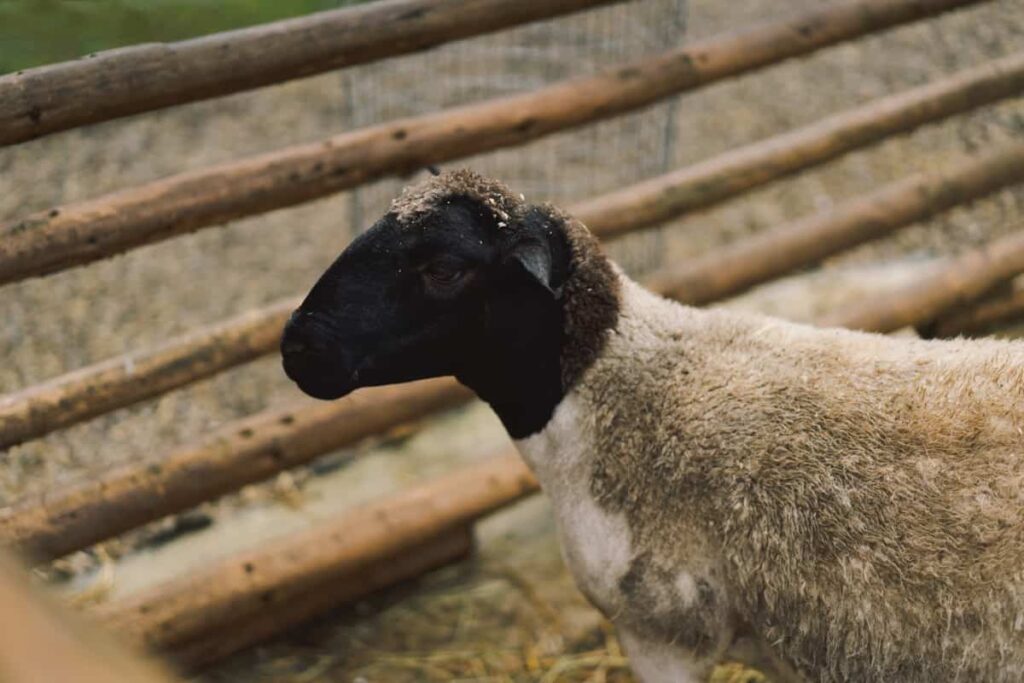
Dorper sheep farming in Kenya offers several benefits, including high productivity, low maintenance, adaptability, and valuable by-products. With their fast growth, ease of care, and suitability to diverse environments, Dorper sheep are valuable for farmers seeking profitable ventures in the Kenyan livestock industry.
- Fast growth: Dorper sheep are known for their fast growth, making them ideal for meat production. Their efficiently converting feed into meat allows for quicker turnover and higher productivity.
- Easy-care animals: Dorper sheep require minimal maintenance and care. They have a short, light wool coat in the summer, reducing the need for shearing. This ease of care saves farmers time and labor.
- Adaptability: Dorper sheep are well-adapted to arid and extensive regions, making them suitable for various climates and environments. They can thrive in areas with limited water and forage resources, which is beneficial in Kenya’s diverse agricultural landscape.
- High fertility and maternal instinct: Dorper sheep have high fertility rates and strong maternal instincts. This results in higher lambing percentages and average fecundity, increasing productivity and profitability.
- Valuable by-products: The thick skin of Dorper sheep is highly prized and provides income through producing high-quality sheepskin. In South Africa, the Dorper skin, known as Cape Glovers, constitutes a significant portion of the income from sheep farming.
- Low susceptibility to health issues: Compared to other breeds, Dorper sheep are less prone to health problems such as flystrike. They do not require shearing, crutching, or mulesing, further reducing the risk of health-related issues and the need for additional interventions.
- Alternative feedlot option: Dorper sheep adapt well to feedlot conditions, providing farmers with an alternative method to finish lambs, especially during periods of drought. This flexibility allows farmers to maximize productivity even in challenging circumstances.
- Size: The Dorper is the second largest breed in South Africa, known for its robust and muscular build.
- Coat color: The wool color of Dorper sheep is mainly white, with some individuals having black patches.
- Face color: The face of Dorper sheep is black, a distinctive breed characteristic.
- Adaptability: Dorper sheep are highly adaptable to various grazing conditions, ranging from arid regions to areas with high rainfall. They can thrive in both extensive and intensive feeding systems.
- Hardiness: This breed has a thick skin that protects against harsh climatic conditions, making it well-suited for diverse environments.
- Low maintenance: Dorper sheep are considered an easy-care breed, requiring minimal labor input. They do not need shearing, crutching, or mulesing like Merinos.
- Grazing behavior: Dorpers can graze and browse, which enables them to consume plants less commonly eaten by other sheep breeds.
- Skin quality: The Dorper skin is highly prized and sought-after worldwide, known as Cape Glovers. It constitutes a significant portion of income for sheep farmers in South Africa.
- Resistance: Dorper sheep are less prone to flystrike, a common issue in some sheep breeds.
In case you missed it: Sheep Farm Operations Management: Month-Wise Maintenance For Better Profits
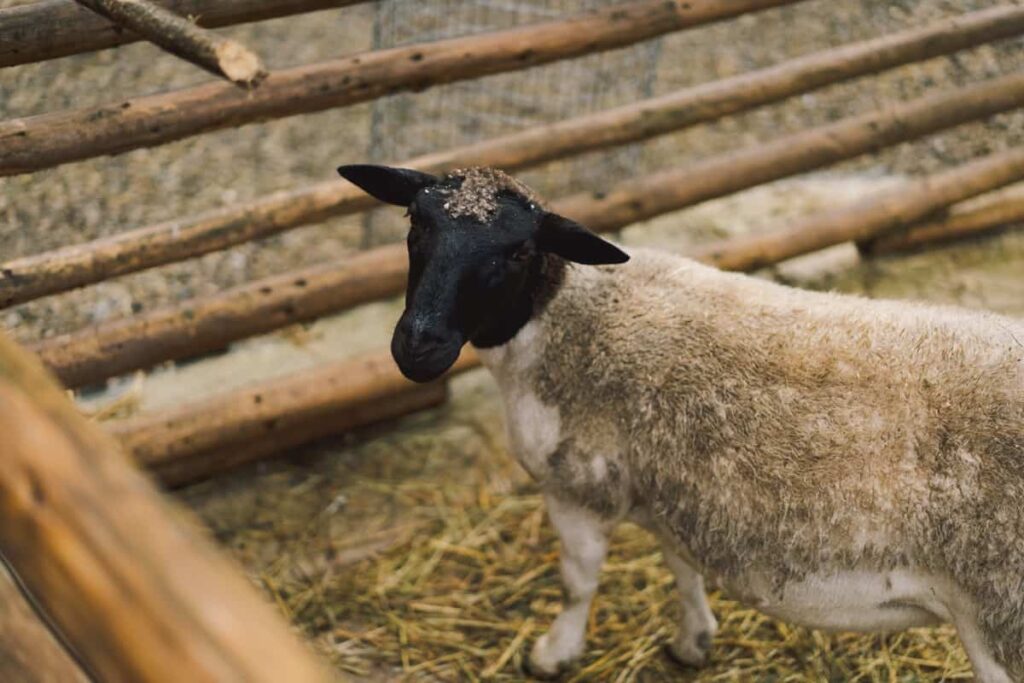
- Ensure a balanced diet: Provide your Dorper sheep with a well-balanced diet that includes energy, protein, minerals, vitamins, and ample water to support their overall health and growth.
- Parasite control: Regularly deworm, vaccinate, and treat your sheep to protect them from internal and external parasites. This helps maintain their health and prevent diseases.
- Provide adequate shelter: Ensure your Dorper sheep have a proper shelter that offers sufficient space, good ventilation, protection from the elements, and a cool environment. This promotes their comfort and well-being.
- Best Dorper Sheep in Kenya: Compared to other common sheep types like the Red Maasai, Dorper sheep mature and grow faster. A Dorper lamb can attain a live weight of 36 kilograms in three to four months. At this age, the ram is typically market-ready and can be sold for no less than Ksh 10,000.
- High-quality forages: Feed your Dorper sheep high-quality forages, such as grass hay, which provides essential nutrients for their diet.
- Consider slaughter age: Dorper sheep are known for their fast growth and can be slaughtered as early as six months. However, waiting until they reach 12 months of age for optimal meat quality is recommended.
Starting a profitable Dorper sheep farm in Kenya requires careful planning, proper management, and attention to detail. By implementing these key strategies, you can set yourself up for success in the Dorper sheep farming industry.
- Plan your farm: Begin by developing a comprehensive business plan that outlines your goals, budget, and strategies for managing your Dorper sheep farm effectively.
- Select high-quality Dorper sheep: Choose healthy and genetically superior Dorper sheep from reputable breeders. Consider factors such as breed standards, health history, and performance records to ensure the quality of your flock.
- Provide proper housing and facilities: Construct suitable housing and infrastructure that provides adequate shelter, ventilation, and space for your Dorper sheep. Ensure the facilities are well-maintained and allow for easy management and handling of the animals.
- Implement a proper nutrition program: Develop a nutrition plan that includes a balanced diet with quality forages, supplements, and access to clean water. Consult with a veterinarian or livestock nutritionist to ensure your sheep’s optimal health and growth.
- Implement effective health management: Establish a regular health program that includes vaccinations, deworming, and regular veterinary check-ups. Proper disease prevention and control measures are crucial for the overall productivity and profitability of your Dorper sheep farm.
- Monitor and manage flock performance: Regularly monitor and record key performance indicators such as growth rates, reproductive performance, and flock health. This data will help you make informed decisions to maximize productivity and profitability.
- Develop marketing strategies: Identify potential market opportunities for your Dorper sheep products, such as meat and wool. Establish relationships with potential buyers and explore value-added opportunities to enhance profitability.
In case you missed it: How to Make Silage for Livestock: Business Plan, Preparation Process for Goats, Sheep, Pigs, and Cows
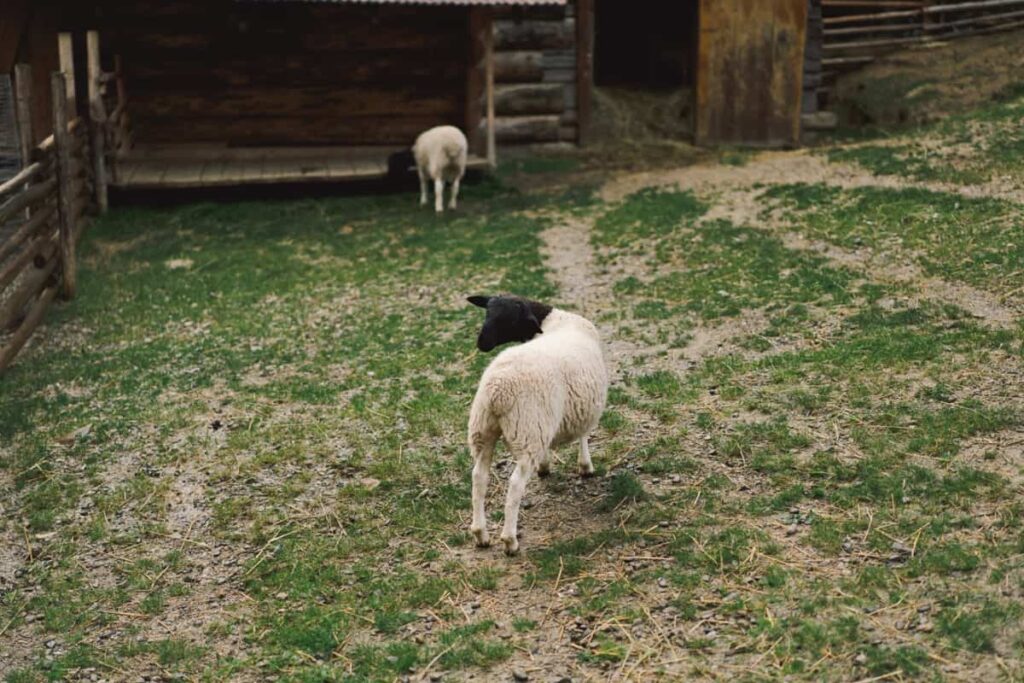
- Provide a balanced diet: Ensure that Dorper sheep receive a well-balanced diet that includes a mix of energy-rich feeds, protein sources, minerals, and vitamins. This will support their growth, reproduction, and overall health. Growing lambs can benefit greatly from pastures that combine grass and clover, as well as small grain and alfalfa.
- Offer high-quality forages: Include high-quality grasses and legumes in the diet, providing essential nutrients and fiber. Good options include Rhodes grass, Napier grass, and Lucerne.
- Supplement with concentrates: To meet their nutritional requirements, supplement the diet with concentrates such as grains, oilseed meals, and mineral supplements. This will provide additional energy and protein.
- Access to clean water: Ensure a constant and clean water supply for Dorper sheep. Water is essential for digestion, metabolism, and overall hydration.
- Feeding management: Feed Dorper sheep in controlled portions to avoid overeating and wastage. Splitting their meals into multiple daily feedings can improve digestion and nutrient absorption.
- Vaccinations: Administer routine vaccinations to protect against common diseases such as Clostridial diseases (e.g., enterotoxemia), foot and mouth disease, and pneumonia.
- Deworming: Implement a regular deworming program to control internal parasites like worms, as they can cause significant health issues.
- Biosecurity measures: Practice strict biosecurity measures to prevent the introduction and spread of diseases. This includes limiting contact with other sheep flocks, disinfecting equipment, and controlling access to the farm.
- Good nutrition: Provide a balanced diet with adequate nutrition to support the sheep’s immune system and overall health, as well-nourished animals are more resistant to diseases.
- Clean and sanitary environment: Maintain clean and sanitary living conditions for the sheep by regularly cleaning and disinfecting their housing and feeding areas.
- Selecting quality breeding stock: Choose healthy and genetically superior Dorper sheep for breeding purposes. Look for good body conformation, high growth rates, strong maternal instincts, and disease resistance.
- Controlled breeding season: Implement a controlled breeding season to ensure optimal reproductive performance. This involves synchronizing the mating of ewes to increase the chances of successful pregnancies.
- Ram-to-Ewe ratio: Maintain an appropriate ram-to-ewe ratio to ensure effective breeding. A ratio of 1 ram for every 25-30 ewes is commonly recommended.
- Estrus detection: Monitor the estrus cycle of ewes to identify when they are in heat and ready for mating. Signs of estrus include restlessness, vocalization, and increased tail wagging.
- Natural mating or Artificial insemination: Choose between natural mating or artificial insemination methods based on your specific breeding goals and available resources.
In case you missed it: 500 Sheep Farming Project Report and Bank Loan in India
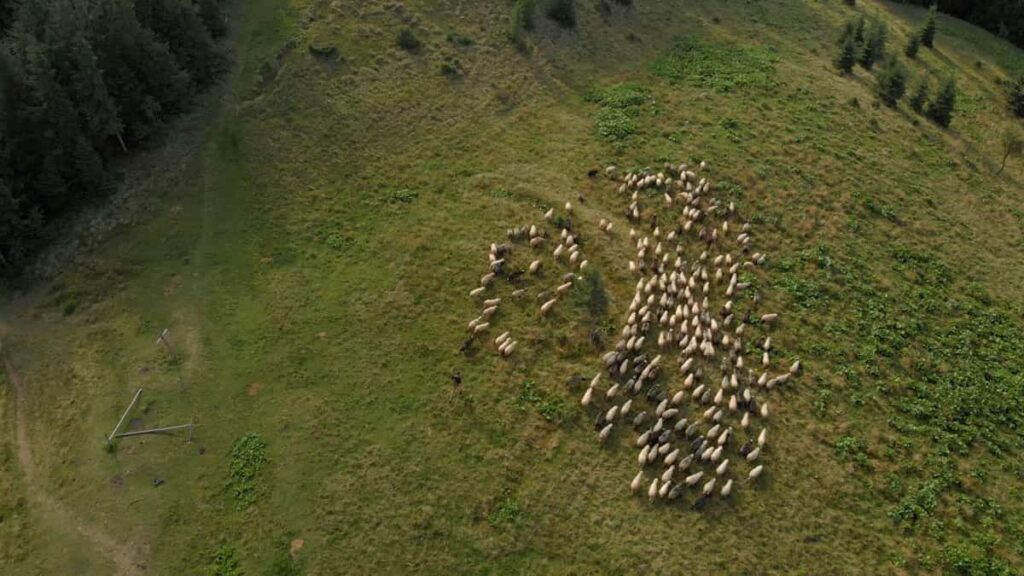
- Male Dorper sheep can start breeding at five months, while Dorper ewes can breed year-round.
- Breeding can typically begin in six to eight months, depending on the season.
- The breeding period for Dorper sheep ranges from 16 to 59 hours.
- Dorper ewes have a gestation period of approximately five months or 147 days.
- Dorper sheep usually give birth to a single lamb; twin lambs are uncommon in this breed.
- Due to their eight-month lambing cycle, Dorper ewes can produce more than two lambs yearly.
- Dorper ewes have a high lambing percentage, with around 78% successfully giving birth and about 10% having twin lambs.
- Many breeders prefer to sell Dorper rams to other farms for breeding purposes.
- Dorper sheep are known for their high reproductive efficiency, with 150% or higher lambing percentages being common.
Profitability of dorper sheep: Dorper sheep farming can be profitable in Kenya due to its fast growth rate, high fertility, and adaptability to various environments. The demand for Dorper sheep meat is increasing domestically and internationally, offering opportunities for farmers to earn good returns on their investments.
Cost of dorper sheep in Kenya: The cost of Dorper sheep in Kenya can vary depending on age, quality, and location. On average, the price of a Dorper sheep in Kenya ranges from Ksh 10,000 to Ksh 30,000. It’s important to source healthy and genetically superior breeding stock to ensure long-term profitability.
Dorper sheep stocking density : The number of Dorper sheep per acre can vary depending on available forage, climate, and management practices. As a general guideline, a stocking rate of 4-8 Dorper sheep per acre is recommended to maintain optimal grazing conditions and prevent overgrazing. Housing should be comfortable, with adequate ventilation and airflow. The shelter for sheep should be 20 centimeters square.
Market demand: Population growth, urbanization, and shifting dietary preferences drive the demand for Dorper sheep meat. There is a growing market for high-quality, lean, and flavorful Dorper lamb meat in Kenya and for export to international markets.
- Implement rotational grazing to promote healthy pasture growth and prevent overgrazing.
- Practice water conservation using efficient irrigation methods and collecting rainwater for livestock watering.
- Plant trees and establish windbreaks to provide shade, shelter, and prevent soil erosion.
- Opt for organic and sustainable feed options to reduce reliance on synthetic additives and minimize environmental impact.
- Implement integrated pest management techniques to control pests and diseases without excessive use of chemical pesticides.
- Promote biodiversity on the farm by preserving natural habitats and planting native vegetation.
- Employ proper waste management practices to minimize pollution and ensure proper disposal of manure and other farm waste.
- Prioritize animal welfare by providing clean and comfortable housing, access to fresh water, and regular veterinary care.
In case you missed it: How to Start Sustainable Sheep Farming: Benefits and How to Reduce Your Carbon Footprint with Sheep
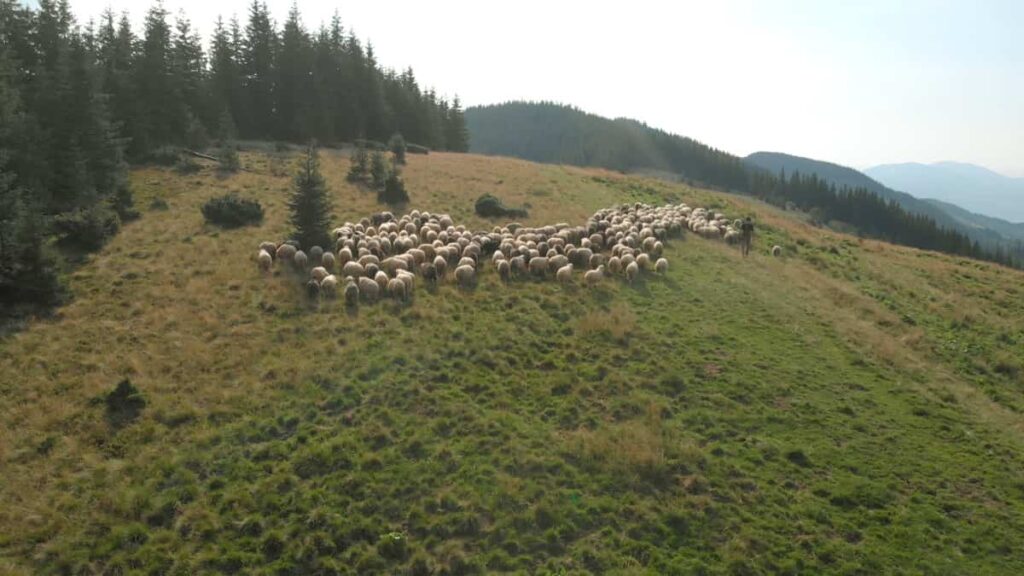
Dorper sheep farming in Kenya offers the best opportunity for farmers. With their fast growth, adaptability, and high fertility, Dorper sheep are well-suited for meat production. Implementing sustainable practices ensures a successful and environmentally responsible venture, from breeding to marketing.
Maximizing Yield in Strawberry Farming: Top Techniques for Success
Organic methods to follow in ridge gourd farming, innovative techniques in cotton farming: boosting yield and sustainability, essential requirements for setting up a boer goat farm.
- Top 10 Strategies to Boost Soil Fertility Naturally – Expert Guide
Rosecoco Beans Farming in Kenya: Tips for Cranberry Beans Cultivation
- Why My Moringa Pods Are Underdeveloped and Are Drying: Reasons and Solutions
How to Choose the Right Liquid Fertilizer for Your Flowers
Sustainable manure management and composting, water usage efficiency: zbnf vs. conventional farming, goat farming business plan: 10 key points to consider, how to make your sheep gain weight in 3 months.
- How to Start a Terrace Garden in Hyderabad: Best Tips for Beginners
Comparative Yield Analysis: ZBNF vs. Conventional Farming
Ultimate guide to commercial tulip farming: cultivation tips for beginners.
- Bridging the Technology Gap: HELIOT Systems Transforming Agriculture for Small and Marginal Farmers
How to Grow Fig Trees in Containers: A Comprehensive Guide
- How to Prevent Fruit Split in Pomegranates: Effective Tips for Beginners
Natural Farming for Livestock: Effective Practices for Beginners
- Ultimate Guide to Growing Currants: Tips for Successful Red and Black Currants Farming
- How to Boost Bottle Gourd Flowering and Yield
- A Step-By-Step Guide to Organic Papaya Farming
- Step-By-Step Guide to Hazelnut Farming: Cultivation Guide for Beginners
- Pruning and Training Techniques for Gourds
- Pollination Strategies for Better Fruit Set in Plants: A Beginners Guide
- How to Convert Existing Drip to Sprinkler Irrigation: A Beginner’s Guide
- Reasons for Papaya Tree Leaves Turning Yellow: Solutions Explained
- Why is My Bonsai Tree Dying: Reasons and Solutions
- Natural Farming Techniques for Beginners
- Why is Citrus Tree Leaves Turning Yellow: Reasons and Solutions
- Cultivator Uses in Agriculture: A Beginners Guide
- Modern Irrigation Methods in Agriculture
- How I Make My Peppers Grow Faster: A Comprehensive Guide
- Crops Grown in Summer Season: Best Choices for Summer Gardening
- Organic Pest Control for Tomato Farming
- How to Maximize Sheep Farming Profit
Very informative literature on Dorper sheep farming. Keep it up. Thankyou
LEAVE A REPLY Cancel reply
Save my name and email in this browser for the next time I comment.
Top 10 Strategies to Boost Soil Fertility Naturally – Expert...
Why my moringa pods are underdeveloped and are drying: reasons..., how to start a terrace garden in hyderabad: best tips..., bridging the technology gap: heliot systems transforming agriculture for small..., how to prevent fruit split in pomegranates: effective tips for..., ultimate guide to growing currants: tips for successful red and..., rice production in myanmar; paddy farming in myanmar, banana farming information guide, growing oats information for beginners, contract goat farming in india: how to earn an extra income from this long-term investment, chilli cultivation information guide, how to start and succeed with microgreens business plan.
Sheep Farm Business Plan (PDF, Excel, Word)
Description.
- Executive summary
- Company overview
- Products and services
- Operation plan
- Market and industry overview
- Sales & marketing plan
- Financial plan
- Risk management plan
- Potential funding sources
PURCHASE NOW
You may also be interested in, market research, business planning, sales & marketing.
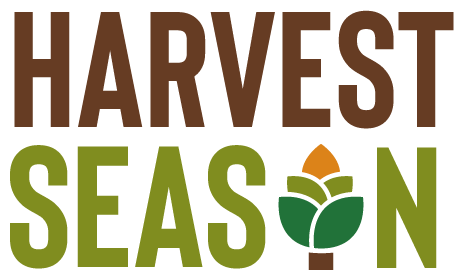
No products in the cart.
0738-325-110 | 0738-325-110
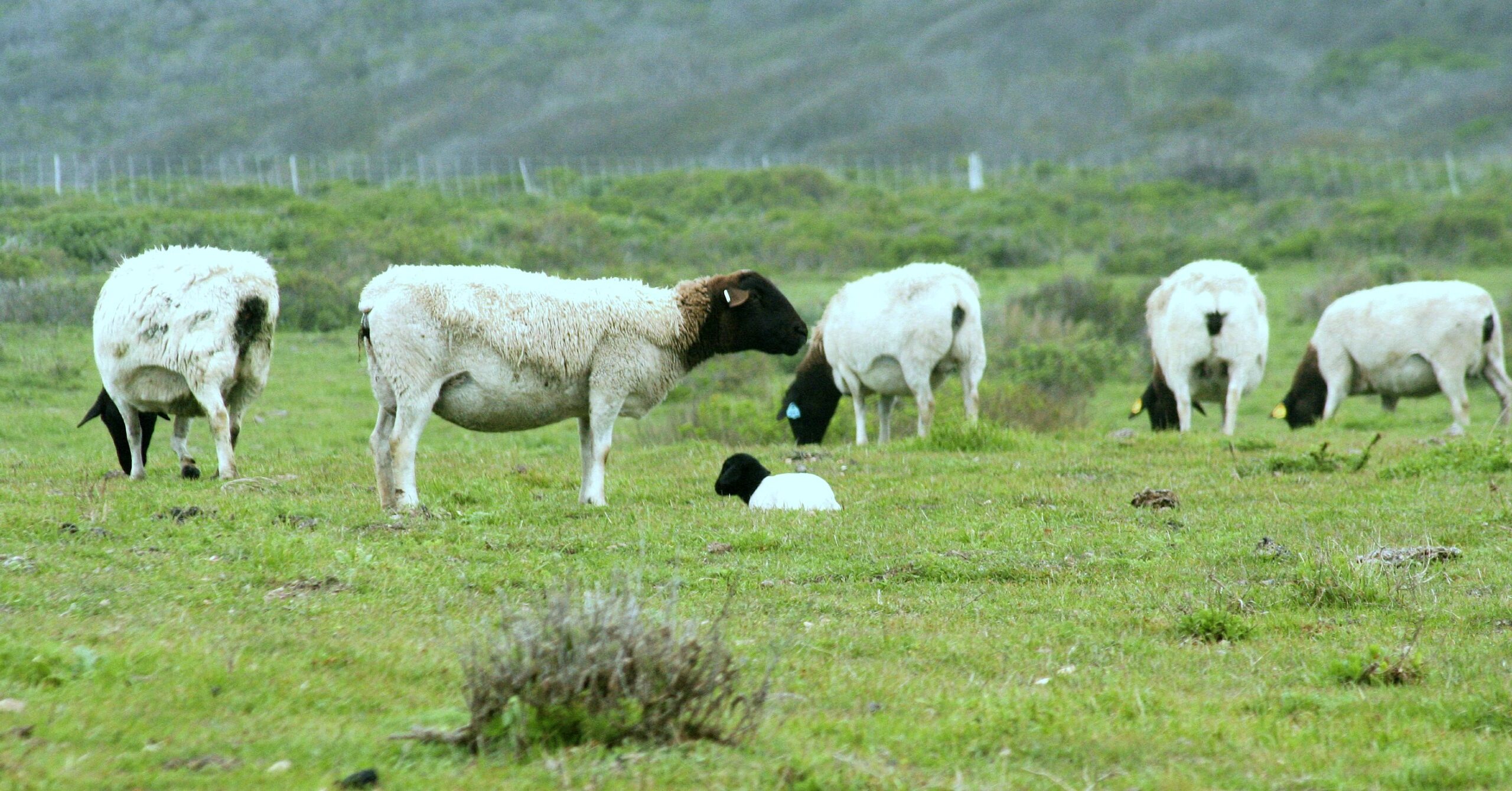
Sheep Farming in Kenya
Sheep farming in Kenya has transformed the lives of many individuals, providing them with a profitable and fulfilling business opportunity
The success of sheep farming lies in its ability to generate a steady income, thanks to the high demand for sheep products such as lamb, wool, and manure.
However, the road to success in this industry is not without its challenges. From selecting the right breed of sheep to implementing innovative farming techniques, there is much to learn and explore.
In this discussion, we will unravel the intricacies of sheep farming in Kenya, shedding light on the key aspects, potential rewards, and the future prospects of this flourishing industry.

Profitability and Benefits
Sheep farming in Kenya offers a multitude of profitability and benefits, making it an attractive venture for aspiring farmers. Commercial sheep farming in Kenya has proven to be very profitable, with the potential to provide a valuable source of income. The profitability of sheep farming depends on factors such as the type of sheep, climate, and market conditions. Merino wool sheep, for example, are highly profitable due to their adaptability to various climates. Good estimating and planning skills are crucial for success in this industry.
Sheep farming not only brings financial gain but also improves livelihoods in Kenya. Sheep can be raised for various purposes, including lamb, wool, and manure production. The diversity of income streams that sheep farming offers makes it a lucrative and sustainable choice.
Furthermore, sheep farming in Kenya is known for its sustainability and cost-effectiveness. Zero-grazing, a method that involves constantly moving sheep to prevent overgrazing, has gained popularity in recent years. This method not only improves soil quality but also increases production levels and reduces greenhouse gas emissions. With proper feeding management and controlled grazing, sheep farming can be a profitable and environmentally friendly venture.
Zero Grazing and Feeding Management
To effectively manage the grazing and feeding of your sheep, it’s important to implement a zero-grazing system and carefully plan their diet. Zero-grazing sheep farming involves keeping your sheep constantly moving to prevent overgrazing.
This method is more sustainable and cost-effective than traditional grazing. It offers several benefits, including improved soil quality, increased production levels, and reduced greenhouse gas emissions. With zero-grazing, you don’t need artificial feed supplements or fencing. This system has been gaining popularity in recent years.
In terms of feeding management, sheep farming relies on controlled grazing and supplemental feeding. It’s crucial to determine the appropriate amount of hay and water for your sheep. A balanced diet of hay, fresh vegetables and fruit, and minerals is recommended. Regional agricultural extension offices can provide specific feeding recommendations based on your location.
Careful loading and transportation of sheep is also necessary to avoid overloading and ensure their well-being.
Starting Sheep Farming
If you’re considering starting a sheep farming venture in Kenya, there are several necessary steps to take in order to set yourself up for success.
You’ll need to purchase sheep, feed, and hay to ensure their proper nutrition.
Constructing a shelter is also crucial to provide a safe and comfortable environment for your sheep.
Breeding and castration are essential for sheep reproduction and management.
When planning your farm, consider the location, soil type, and climate conditions to ensure the optimal conditions for your sheep.
Building fences and barns will help keep your animals secure, while installing water tanks and shelters will provide them with the necessary resources.
Additionally, cultivating crops for livestock feed will help reduce costs and ensure a sustainable food source.
Starting a sheep farming venture in Kenya requires both time and money, but with careful planning and implementation, you can set yourself up for success in this profitable industry.
Sheep Farming Areas
One of the main areas for sheep farming in Kenya is Lamu Island, known for its rangelands for goats and sheep.
In addition to Lamu Island, there are other regions in Kenya that are suitable for sheep farming.
Isiolo is one such area, with agricultural land that’s well-suited for both crops and sheep.
Nyanza Province is another region that offers ample pastureland for sheep and goats.
Eastern Province is also a favorable area for sheep farming, with good wetland grazing potential.
These regions have a diverse range of altitudes and various sheep breeds, making them ideal for small-scale sheep farming.
The abundance of grass and water, as well as the high population density, contribute to the concentration of sheep farming operations in these areas.
With their favorable climatic conditions and suitable grazing lands, these areas provide great opportunities for the success of sheep farming in Kenya.
Commercial Aspects and Challenges
Sheep farming in Kenya presents both commercial opportunities and challenges for farmers. The industry is a significant sector contributing to the economy and export earnings. With rising income levels and demand for wool products, sheep farming is a growing industry.
Farmers have the opportunity to profit from high-value products such as wool, milk for cheese production, and lamb meat. However, there are challenges that farmers must navigate. Overgrazing, competition from other livestock industries, and disease outbreaks are common hurdles in sheep farming. Lack of access to water is also a major challenge that farmers face.
Despite these challenges, sheep farming loans are available to cover start-up costs. It’s important for farmers to carefully consider these commercial aspects and challenges before venturing into sheep farming in Kenya. By understanding both the opportunities and the obstacles, farmers can make informed decisions and implement effective management practices to ensure the success of their sheep farming endeavors.
Breeds and Housing
When considering breeds and housing for sheep farming in Kenya, it’s important to choose breeds that are well-adapted to the local ecological conditions and production goals.
The Dorper breed is the most popular in Kenya, known for its hardiness, fast growth rate, and good meat quality. Another breed, the Red Maasai, is kept for meat and hides and is resistant to diseases and parasites. The Blackhead Persian is well-known for its fine wool and is mainly kept in the highlands region. The Merino breed is kept for wool and is suitable for the highlands. Lastly, the Hampshire breed is known for its good meat quality and fast growth rate.
In terms of housing, it’s important to provide shelter that’s clean, well-ventilated, and protects the sheep from the elements, especially during the rainy season. Sheds, pens, and kraals are commonly used for housing sheep.
The floor should be made of concrete or wood and sloped for proper drainage. The design should prevent escape and predator attacks.
Taking these factors into consideration will ensure the success and profitability of your sheep farming venture in Kenya.
Feeding and Health
To ensure the health and well-being of your sheep, proper feeding practices and regular veterinary care are essential. Sheep require a balanced diet that’s high in energy, protein, minerals, and vitamins. Feeds such as grass, hay, silage, and concentrates like maize, wheat bran, and cottonseed cake should be provided. It’s important that the feed is of good quality and free from contaminants. Additionally, sheep should always have access to clean water. Proper feeding is crucial for the success of your sheep farming venture.
In terms of health, sheep in Kenya are prone to diseases such as gastrointestinal parasites, respiratory diseases, and foot rot. To prevent these diseases, regular vaccinations and deworming treatments are necessary. Good hygiene and sanitation practices, including regular cleaning of housing and feeding areas, are important to prevent disease spread. If you notice any signs of illness in your sheep, it’s important to seek veterinary assistance.
Management Practices
Now that you have established proper feeding and health practices for your sheep, it’s essential to focus on effective management practices to ensure the success of your sheep farming venture.
Accurate record keeping of breeding history, health status, and production performance is important. Keeping records of feed and medication purchases and costs is also necessary. This information will help you make informed decisions and identify areas for improvement.
Effective management practices are crucial for successful sheep farming. Government initiatives and cooperatives can support small-scale farmers in Kenya.
Implement controlled breeding and selection of superior individuals. Provide well-ventilated, clean, and spacious housing for your sheep. Practice proper grooming to prevent diseases and parasites. Implement disease control measures such as vaccination and quarantine.
Consider factors such as meat or wool production, disease resistance, growth rate, and reproductive performance when choosing sheep breeds. Implement appropriate housing, feeding, and disease control measures.
Identify profitable markets such as local butcheries, meat processing plants, or export markets. Consider demand and supply dynamics, prevailing prices, and quality requirements. Choose sheep breeds adapted to local ecological conditions.
Factors to Consider
Considering various factors is crucial when starting a sheep farming venture in Kenya.
One important factor to consider is the choice of sheep breed. You should select breeds that are well adapted to the local ecological conditions and align with your production goals. Factors to consider when choosing a breed include meat or wool production, disease resistance, growth rate, and reproductive performance.
Another factor to consider is the balanced diet for your sheep. It’s essential to provide a variety of feeds such as pasture, hay, silage, and concentrates to meet their nutritional requirements for growth, reproduction, and maintenance.
Additionally, implementing appropriate housing, feeding, and disease control measures is vital for the health and well-being of your sheep.
Identifying profitable markets is also crucial. You should consider local butcheries, meat processing plants, or export markets that have a demand for sheep products. Understanding the demand and supply dynamics, prevailing prices, and quality requirements of these markets is essential for your profitability.
Profitability and Markets
Profitability and markets in sheep farming in Kenya are influenced by various factors. One important factor is breed selection, as choosing the right breed is crucial for profitability. Some breeds are more profitable due to their meat and wool quality, growth rate, and adaptability to different climates.
Another factor that affects profitability is effective management practices. Practices such as deworming, vaccination, proper feeding, and housing can increase productivity and reduce mortality, ultimately impacting profitability.
Market demand also plays a significant role. Festive seasons and religious holidays can increase demand for sheep meat and wool, leading to higher prices. Additionally, adding value to sheep products, such as wool and hides, can create new markets and increase prices.
The main markets for sheep in Kenya include local butcheries, meat processing plants, and export markets. By considering breed selection, implementing good management practices, and understanding market demand, you can enhance the profitability of your sheep farming business in Kenya.
Dorper Sheep Farming
To get started with Dorper sheep farming in Kenya, it’s important to begin with a manageable number of Dorper sheep in order to gain experience and minimize risks. Dorper sheep are a breed of domestic sheep that originated in South Africa. They’re known for their meat production qualities and adaptability to various climates. By crossbreeding Dorset Horn and Blackhead Persian sheep, the breed was developed to efficiently convert feed into meat, making them economically attractive for meat production. In South Africa, Dorper sheep are the second most common sheep breed.
When starting your Dorper sheep farm, consider acquiring a small number of Dorper sheep first. This will allow you to learn the ins and outs of sheep farming and reduce the potential for financial losses. As you gain experience and confidence, you can gradually increase your flock size.
Remember to provide proper housing, feeding, and healthcare for your Dorper sheep to ensure their well-being and maximize their productivity. With careful planning and management, Dorper sheep farming can be a profitable venture in Kenya.
Getting Started With Dorper Sheep Farming
Start your Dorper sheep farming journey in Kenya by acquiring a small number of Dorper sheep to gain experience and minimize risks. It’s important to start with a manageable number of sheep, as this will allow you to learn the ropes of sheep farming without overwhelming yourself.
Begin by researching reputable breeders or farmers who specialize in Dorper sheep and select healthy and well-bred animals. Take the time to assess the condition of the sheep, ensuring they’re free from any diseases or parasites.
Once you have acquired your Dorper sheep, make sure to provide them with proper housing, nutrition, and veterinary care. Construct a shelter that’s clean, well-ventilated, and predator-proof. Feed them a balanced diet consisting of high-quality forage, hay, and concentrate feeds. Regularly monitor their health and address any health issues promptly.
Economic Importance of Sheep Farming
Sheep farming in Kenya holds significant economic importance, contributing to the country’s economy and export earnings. The sheep farming industry is a growing sector supported by rising income levels and the demand for wool products. Sheep provide high-value products such as wool, milk for cheese production, and lamb meat.
This industry not only generates income for farmers but also creates employment opportunities throughout the value chain, from shearing and processing wool to marketing and exporting sheep products. The profitability of sheep farming depends on various factors such as the type of sheep, climate conditions, and market dynamics.
Additionally, sheep farming plays a crucial role in improving livelihoods in rural areas by providing a source of income and food security for families. However, there are challenges to overcome, including overgrazing, competition from other livestock industries, disease outbreaks, and limited access to water.
Despite these challenges, the economic importance of sheep farming in Kenya can’t be underestimated, and with proper management practices and market opportunities, it has the potential to contribute even more to the country’s economy.
Sustainable Practices in Sheep Farming
Implementing sustainable practices in sheep farming is essential for ensuring the long-term viability and environmental responsibility of the industry. By adopting sustainable practices, you can minimize the negative impact on the environment while maximizing the productivity and profitability of your sheep farm.
One important sustainable practice is implementing proper grazing management. This involves rotating your sheep to different pastures to prevent overgrazing and allow for natural re-growth of the vegetation.
Additionally, practicing soil conservation techniques such as contour plowing and terracing can help prevent soil erosion and maintain the quality of your land.
Another important aspect of sustainable sheep farming is responsible waste management. Properly managing manure and other waste products can help prevent water pollution and reduce greenhouse gas emissions. Consider implementing composting systems or using manure as organic fertilizer to enrich your soil.
Lastly, investing in renewable energy sources such as solar panels or wind turbines can help reduce your farm’s carbon footprint.
Reproduction and Breeding
By focusing on the important aspect of sheep farming, which is reproductive and breeding practices, you can ensure the long-term success and sustainability of your sheep farm.
Reproduction and breeding are crucial for maintaining a healthy and productive flock. When it comes to reproduction, it’s essential to have a breeding plan in place. This plan should include selecting the right ram and ewes based on their genetic traits and overall health.
It’s also important to monitor the breeding process to ensure successful mating and conception. Regular health check-ups and vaccinations are necessary to prevent diseases and ensure the well-being of your sheep during the breeding process.
Additionally, proper nutrition plays a vital role in the reproductive success of your flock. Providing a balanced diet with the right amount of nutrients will support the fertility and overall health of your sheep.
Nutritional Requirements for Sheep
To ensure optimal health and productivity in your flock, it’s essential to provide sheep with a well-balanced diet that meets their nutritional requirements. Sheep require a diet that’s high in energy, protein, minerals, and vitamins. Feeds such as grass, hay, silage, and concentrates like maize, wheat bran, and cottonseed cake can be included in their diet. It’s important to ensure that the feed is of good quality and free from contaminants.
Additionally, sheep should have access to clean water at all times. Proper feeding is crucial for the success of your sheep farming venture.
Sheep in Kenya are prone to diseases such as gastrointestinal parasites, respiratory diseases, and foot rot. To prevent these diseases, regular vaccinations and deworming treatments are necessary. Good hygiene and sanitation practices, including regular cleaning of housing and feeding areas, are important to prevent disease spread.
If you notice any signs of illness in your sheep, it’s important to seek veterinary assistance. By providing a well-balanced diet and taking proper care of their health, you can ensure the well-being and productivity of your sheep flock.
Disease Prevention and Control
To ensure the health and productivity of your sheep flock, it’s crucial to prioritize disease prevention and control measures.
Sheep in Kenya are prone to diseases such as gastrointestinal parasites, respiratory diseases, and foot rot. Regular vaccinations and deworming treatments are necessary to prevent these diseases.
Good hygiene and sanitation practices, such as regular cleaning of housing and feeding areas, are important to prevent disease spread.
If you notice any signs of illness, it’s important to seek veterinary assistance. Accurate record-keeping of breeding history, health status, and production performance is also important for effective disease control.
By implementing disease control measures like vaccination and quarantine, you can minimize the risk of disease outbreaks in your flock.
Record Keeping and Data Analysis
Record keeping and data analysis are essential components of effective sheep farming in Kenya. Keeping accurate records allows you to track the health, reproduction, and production performance of your sheep. By documenting important information such as breeding history, health status, and medication purchases, you can make informed decisions and identify areas for improvement.
Data analysis helps you identify patterns and trends in your flock’s performance, enabling you to adjust your management practices accordingly. For example, if you notice a decline in lambing rates, you can investigate possible causes and implement measures to improve reproduction.
Additionally, record keeping and data analysis are crucial for financial management. By keeping track of feed and medication purchases and costs, you can assess the profitability of your sheep farming operation and make adjustments as needed.
Government Support and Initiatives
The government in Kenya provides support and initiatives to assist sheep farmers in their agricultural endeavors. The government recognizes the importance of the sheep farming sector to the economy and has implemented various programs to support farmers.
One of the initiatives is the provision of loans specifically for sheep farming, which helps farmers cover start-up costs and invest in their businesses. Additionally, the government has established agricultural extension offices that provide valuable information and guidance to sheep farmers, including feeding recommendations and disease control measures. These extension offices also offer training programs and workshops to enhance farmers’ knowledge and skills in sheep farming.
Furthermore, the government promotes the establishment of cooperatives among sheep farmers, which allows them to collectively market their products and access better prices. Through these support and initiatives, the government aims to improve the profitability and sustainability of sheep farming in Kenya, ultimately benefiting the livelihoods of farmers and contributing to the overall development of the agricultural sector.
Marketing Strategies for Sheep Products
Implementing effective marketing strategies is essential for maximizing the profitability of sheep products in Kenya. With a growing demand for sheep meat and wool, it’s important to develop strategies that will help you reach your target market and generate higher sales.
One key marketing strategy is to identify profitable markets such as local butcheries, meat processing plants, or even export markets. Understanding the demand and supply dynamics, prevailing prices, and quality requirements of these markets will enable you to make informed decisions about where to sell your sheep products.
Additionally, taking advantage of festive seasons and religious holidays can increase demand and prices for your products. Another strategy is to add value to your sheep products by processing the wool and hides, creating new markets and increasing prices.
Challenges and Opportunities in the Sheep Industry
Facing both challenges and opportunities, the sheep industry in Kenya is poised for growth and development. With rising income levels and demand for sheep products, there’s a significant potential for profitability in the industry.
Sheep provide high-value products such as wool, milk for cheese production, and lamb meat, which are in demand both locally and in export markets.
However, the sheep industry also faces several challenges. Overgrazing is a major concern, as it can lead to the degradation of pastureland. Competition from other livestock industries, such as cattle and goats, also poses a challenge. Disease outbreaks, especially gastrointestinal parasites and respiratory diseases, can significantly impact the health and productivity of sheep. Additionally, the lack of access to water is a major constraint for farmers.
Despite these challenges, there are opportunities for growth in the sheep industry. Government initiatives and cooperatives can support small-scale farmers and provide them with the necessary resources and training. Value addition to sheep products, such as processing wool and hides, can create new markets and increase profitability. Furthermore, the festive seasons and religious holidays provide an opportunity for increased demand and higher prices.
Innovations in Sheep Farming Technology
With the growing demand for sheep products and the need for efficient farming practices, the sheep industry in Kenya is embracing innovative technologies to enhance productivity and profitability. These advancements in sheep farming technology are revolutionizing the industry and providing farmers with new tools to improve their operations.
One such innovation is the use of electronic identification (EID) tags for tracking and monitoring individual sheep. These tags contain unique identification numbers that allow farmers to keep accurate records of each sheep’s health, breeding history, and performance. This information enables farmers to make informed decisions regarding breeding, feeding, and healthcare, leading to better overall management and increased productivity.
Additionally, the adoption of precision farming techniques, such as remote sensing and satellite imagery, is helping farmers monitor and manage their pastures more efficiently. By analyzing data on vegetation growth and soil moisture levels, farmers can optimize grazing strategies and prevent overgrazing, ensuring the sustainable use of pasture resources.
Furthermore, the use of automated feeding systems and robotic milkers is streamlining feeding and milking processes, reducing labor costs and improving efficiency. These technological advancements aren’t only increasing productivity and profitability but also promoting sustainable and environmentally-friendly practices in the sheep farming industry in Kenya.
Sheep Farming Best Practices
To achieve success in sheep farming, it’s essential to implement best practices for optimal productivity and profitability.
One of the most important practices is zero-grazing, which involves constantly moving the sheep to prevent overgrazing. This method is more sustainable and cost-effective than traditional grazing, and it brings benefits such as improved soil quality, increased production levels, and reduced greenhouse gas emissions.
Another crucial aspect is feeding management, where you need to determine the appropriate amount of hay and water for your sheep. A balanced diet of hay, fresh vegetables and fruit, and minerals is recommended, and you can seek specific feeding recommendations from regional agricultural extension offices.
Proper loading and transportation of sheep is also necessary to avoid overloading and stress.
Additionally, it’s important to practice good record-keeping of breeding history, health status, and production performance, as well as feed and medication purchases and costs.
Success Stories in Sheep Farming
Sheep farmers in Kenya have achieved remarkable success in their ventures, demonstrating the profitability and potential of the industry. These success stories highlight the lucrative opportunities that sheep farming can offer to individuals and communities. By implementing effective management practices and utilizing the natural resources available, these farmers have been able to generate significant income and improve their livelihoods.
One such success story is that of Jackson, a sheep farmer from Nyanza Province. With careful planning and dedication, Jackson built a thriving sheep farming business. He focused on breeding high-quality sheep, ensuring that his flock was healthy and well-nourished. By providing proper housing, feeding, and disease control measures, he was able to maximize productivity and reduce mortality rates. Jackson also identified profitable markets for his sheep, selling to local butcheries and meat processing plants. His success hasn’t only brought him financial stability but has also inspired others in his community to venture into sheep farming.
Another inspiring success story is that of Mary, a small-scale sheep farmer from Isiolo. Despite limited resources, Mary was able to establish a profitable sheep farming operation. She practiced zero-grazing, which allowed her to prevent overgrazing and improve soil quality. By carefully managing her flock’s diet and providing them with the necessary nutrition, Mary was able to raise healthy and productive sheep. Her dedication and hard work paid off, as she was able to sell her sheep at competitive prices and generate a steady income for her family.
These success stories in sheep farming demonstrate the immense potential of the industry in Kenya. With the right knowledge, skills, and resources, individuals can achieve remarkable success and create a sustainable income source. By learning from these success stories and implementing best practices, aspiring sheep farmers can embark on their own journey towards profitability and prosperity.
Future Prospects for Sheep Farming in Kenya
The future prospects for sheep farming in Kenya are promising. There is a growing demand for high-quality sheep products and a supportive environment for agricultural development. The Kenyan sheep farming industry is experiencing increased profitability and benefits due to rising income levels and demand for wool products. Sheep provide valuable high-value products such as wool, milk for cheese production, and lamb meat.
The industry is supported by government initiatives and cooperatives that assist small-scale farmers. Challenges such as overgrazing, competition from other livestock industries, and disease outbreaks are being addressed through improved management practices and disease control measures. Access to water remains a major challenge, but sheep farming loans are available to cover start-up costs.
In terms of markets, the demand for sheep meat and wool is expected to continue to rise, especially during festive seasons and religious holidays. By implementing good practices in feeding, housing, and health management, farmers can increase productivity and reduce mortality. Adding value to sheep products, such as wool and hides, can also create new markets and increase prices.
So, if you’re looking for a profitable and rewarding venture in Kenya, sheep farming is definitely worth considering. With the right planning and management, it can provide a valuable source of income through lamb, wool, and manure production.
Zero-grazing techniques have also proven to be sustainable and cost-effective, benefiting both the environment and production levels.
Despite the challenges, there are success stories in the industry, and with advancements in technology, the future prospects for sheep farming in Kenya look promising.
Similar Posts
Why choose galla goats for your farm.
Choosing the right breed of livestock is crucial for any farmer, especially in regions with challenging climates. Galla goats, also…
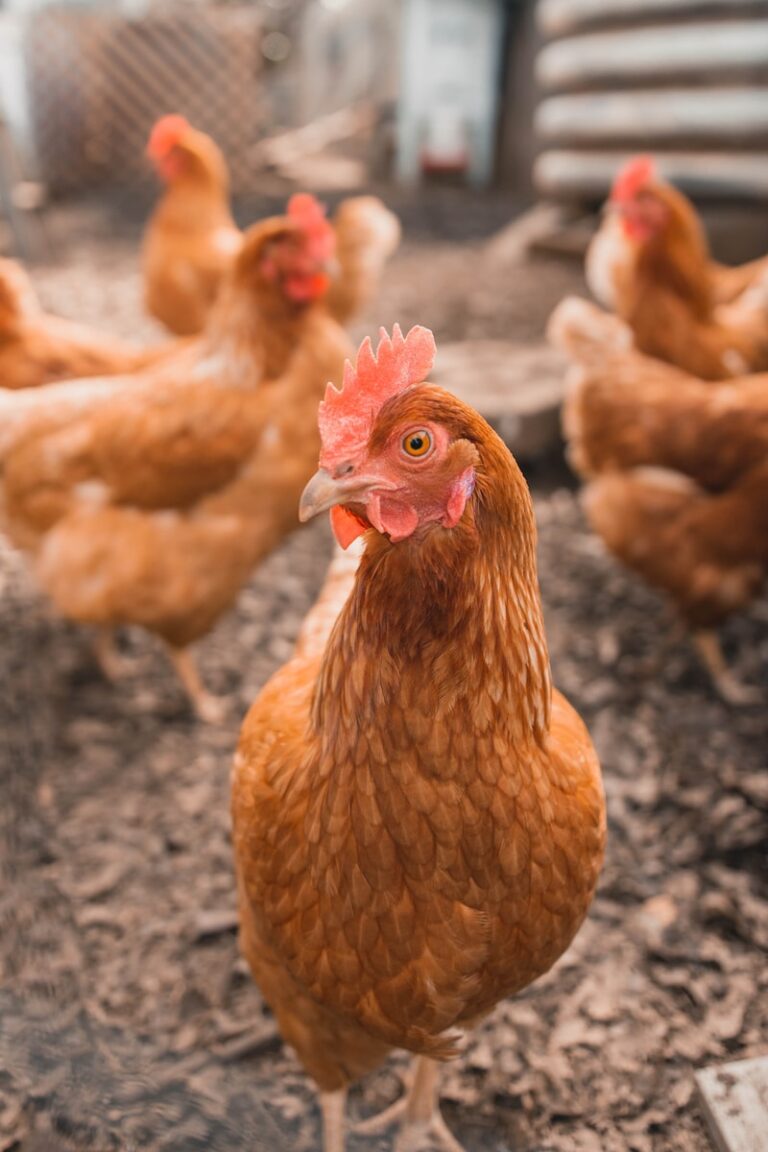
Chicken Farming Business Plan: How to Start a Profitable Poultry Farm in Kenya
Are you looking for a lucrative business opportunity in Kenya? Do you love raising chickens and want to turn your…
Best Practices for Galla Goat Housing and Shelter
Proper housing and shelter are critical elements in the management of Galla goats, ensuring their health, safety, and productivity. Galla…
Galla Goats: Origins, Characteristics, and Benefits
Galla goats, also known as Somali goats, are a vital breed in the livestock farming industry, particularly in East Africa….
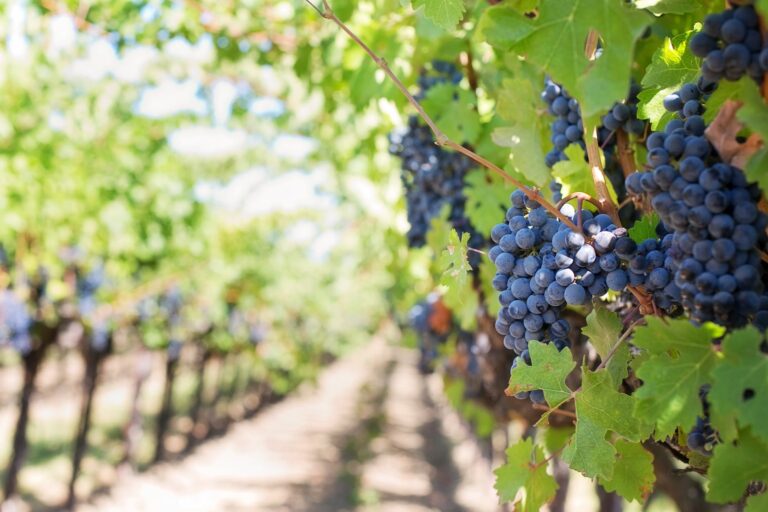
Which Farming Is Most Profitable In Kenya
When it comes to farming in Kenya, there are a variety of options available. But which one is the most…
Setting Up Your Galla Goat Farm: What You Need to Know
Starting a Galla goat farm can be a rewarding and profitable venture, especially if you are well-prepared. Galla goats, known…
Leave a Reply Cancel reply
Your email address will not be published. Required fields are marked *
Save my name, email, and website in this browser for the next time I comment.

IMAGES
COMMENTS
Aug 29, 2024 · In case you missed it: Zero Grazing Sheep Farming: How to Start, Business Plan for Beginners. Sheep breeds in Kenya. Sheep farming in Kenya is divided into dry land and wetland. Dry-land sheep farming occurs on open plains, while wet-land sheep farming occurs along rivers or in swampy areas.
Sep 7, 2021 · However, one requires to understand the major components of sheep farming in Kenya to come up with a proper business plan for successful sheep farming in Kenya. BREEDS We have fine wool breeds like merino; medium wool breeds such as Corriedale, Hampshire, Suffolk, Dorset horn; indigenous hair sheep such as Red Maasai, Dorper and the fat rumped ...
Jan 28, 2024 · Sheep farming in Kenya is a thriving sector that contributed Ksh 56.4 billion to the national GDP in 2019, according to data from the Kenya National Bureau of Statistics (KNBS). Sheep farming in Kenya has emerged as a significant player in the country's agricultural landscape, making substantial contributions to the economy. According to data from
Sep 5, 2023 · Starting a profitable Dorper sheep farm in Kenya requires careful planning, proper management, and attention to detail. By implementing these key strategies, you can set yourself up for success in the Dorper sheep farming industry. Plan your farm: Begin by developing a comprehensive business plan that outlines your goals, budget, and strategies ...
This business plan provides a blueprint for how to start and manage your Sheep Farm business. Our detailed research and analysis, including interviews with entrepreneurs and stakeholders, will ensure that you plan your future business for success.
Jan 13, 2024 · The main markets for sheep in Kenya include local butcheries, meat processing plants, and export markets. By considering breed selection, implementing good management practices, and understanding market demand, you can enhance the profitability of your sheep farming business in Kenya. Dorper Sheep Farming. To get started with Dorper sheep ...